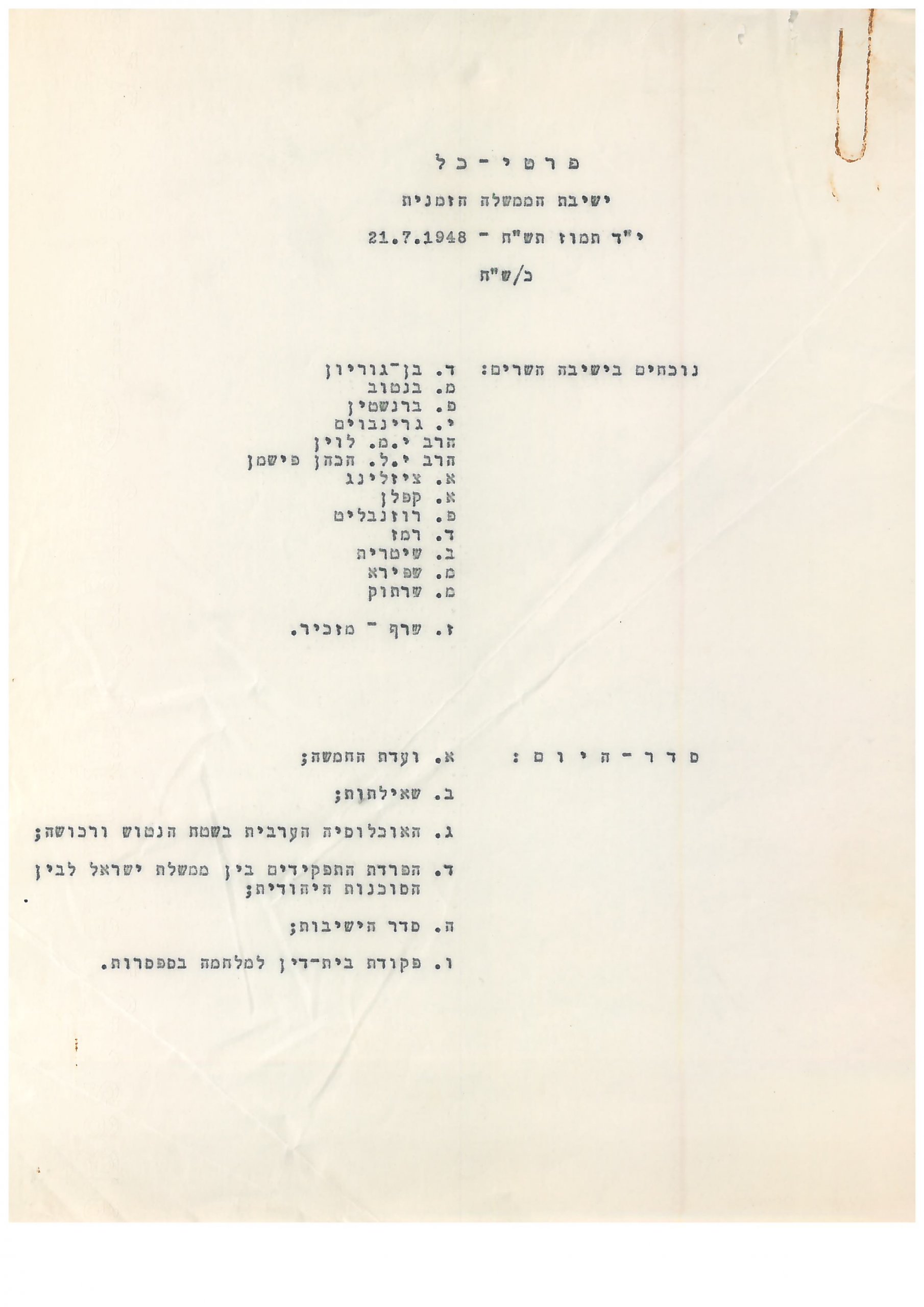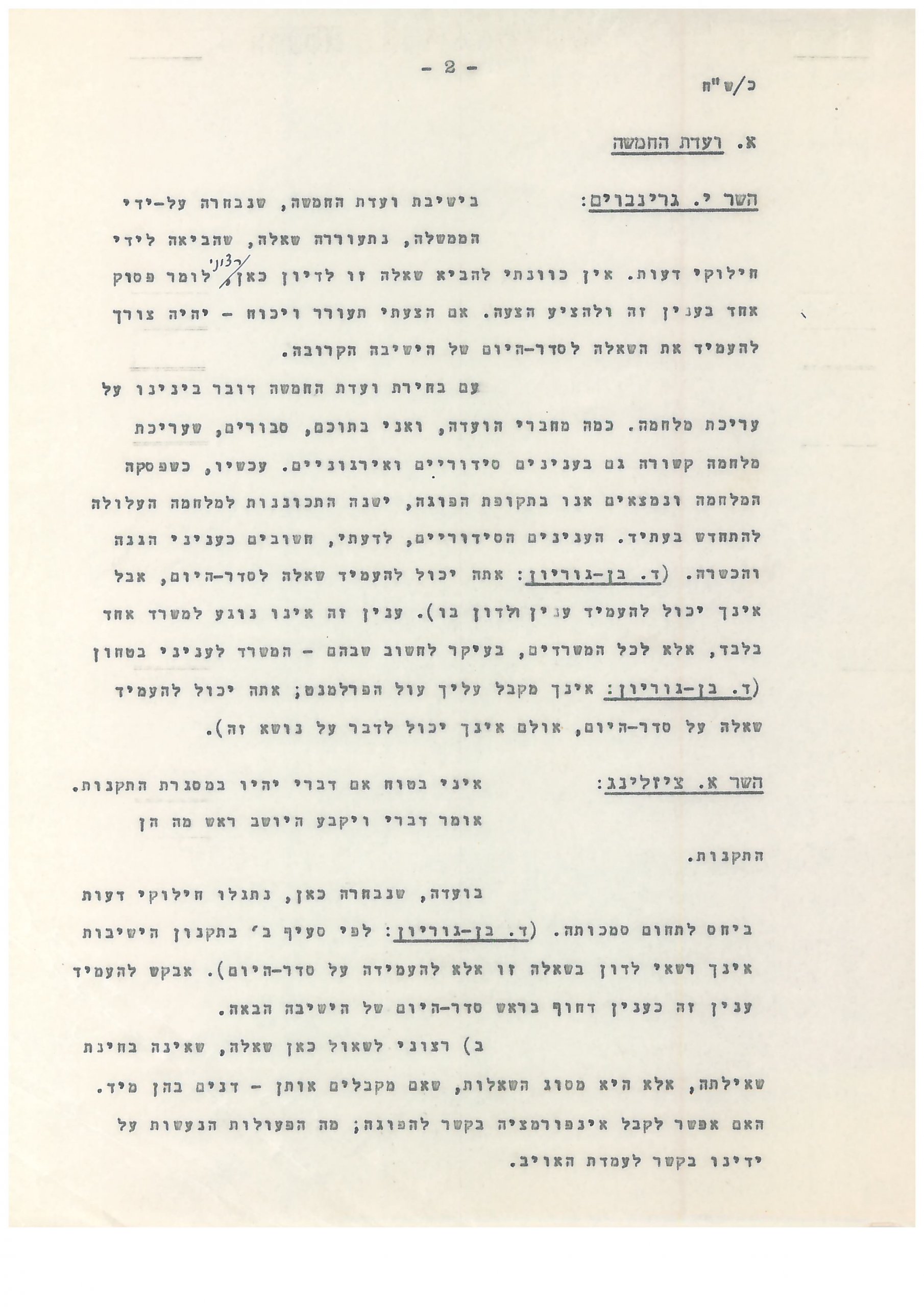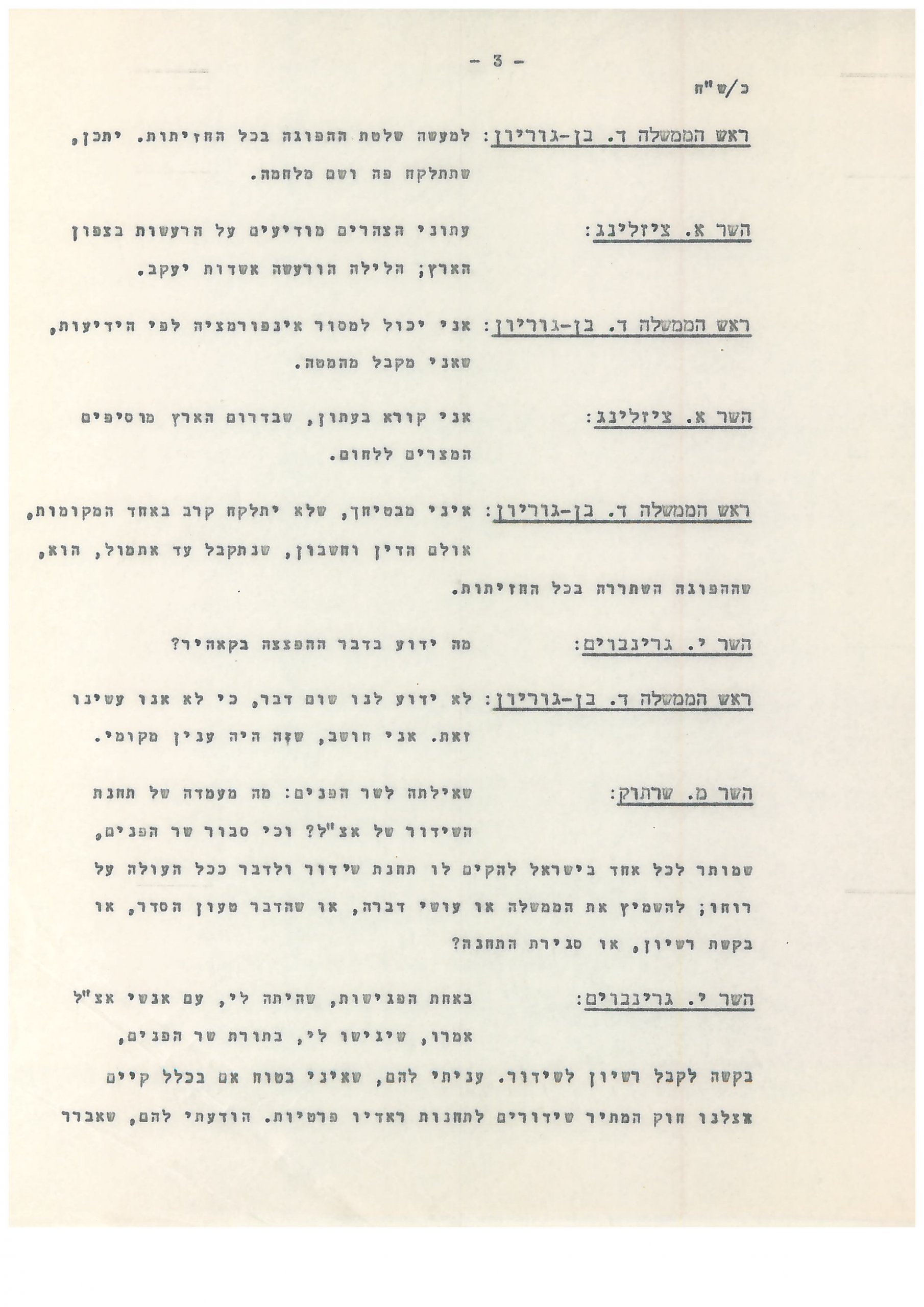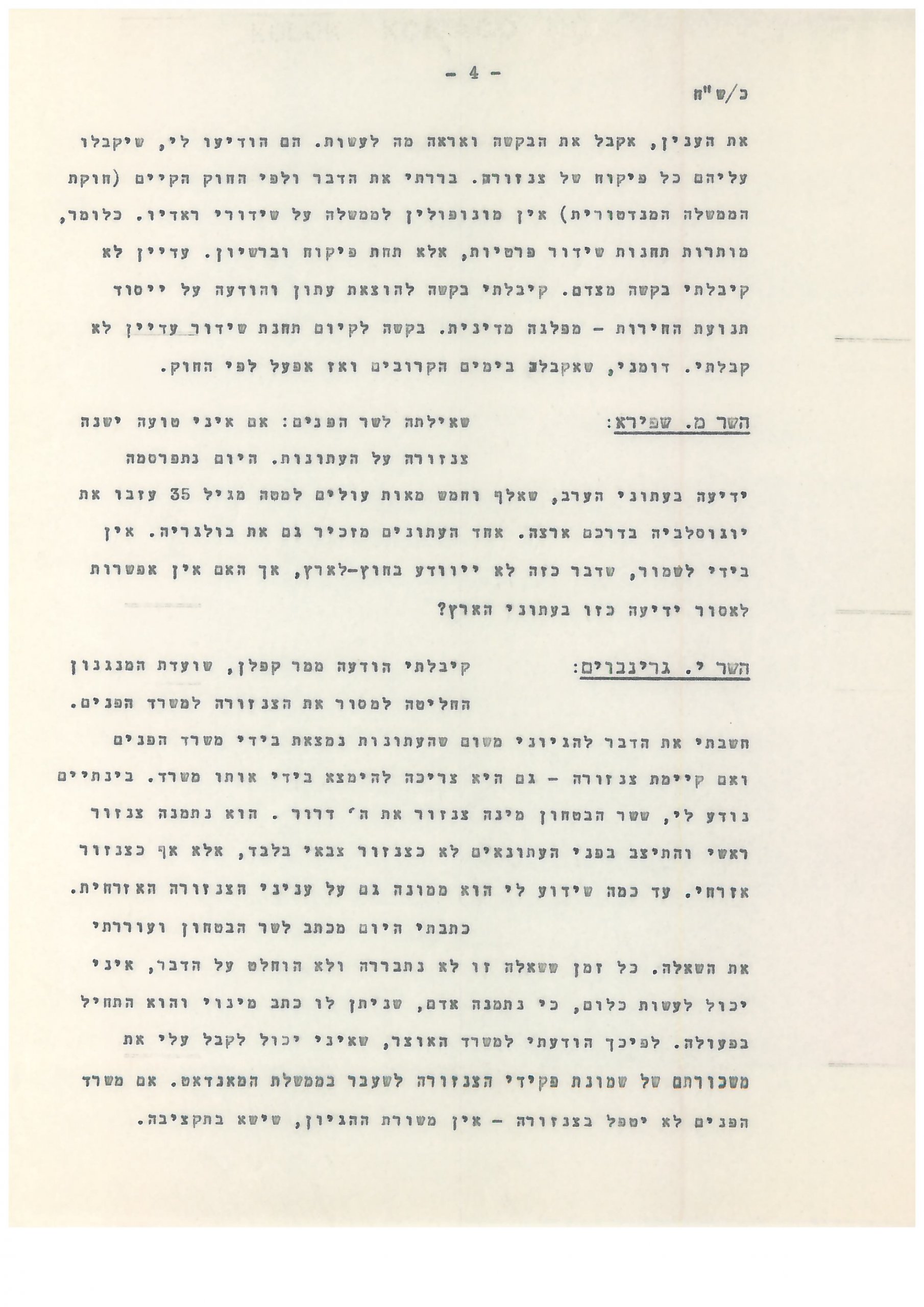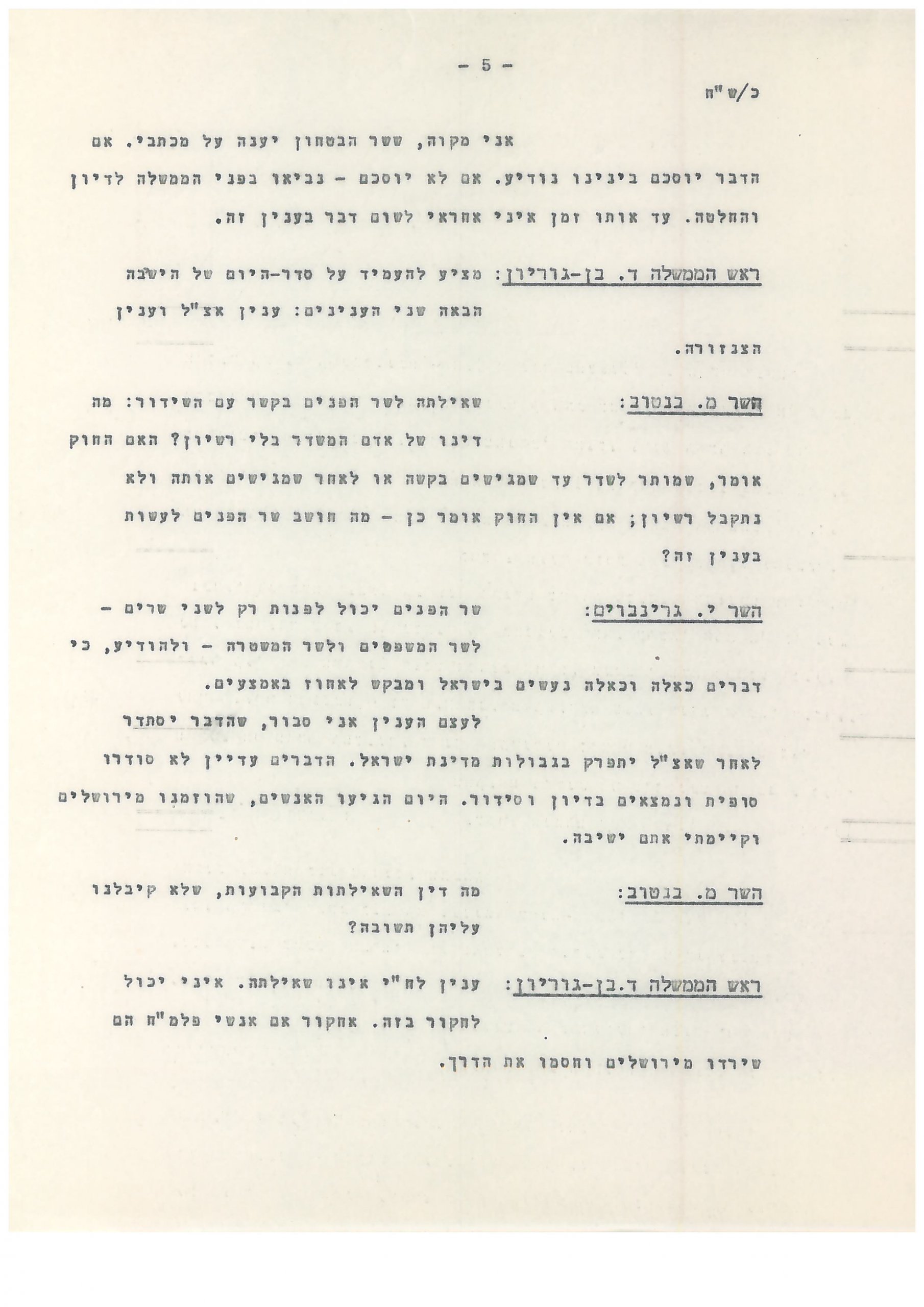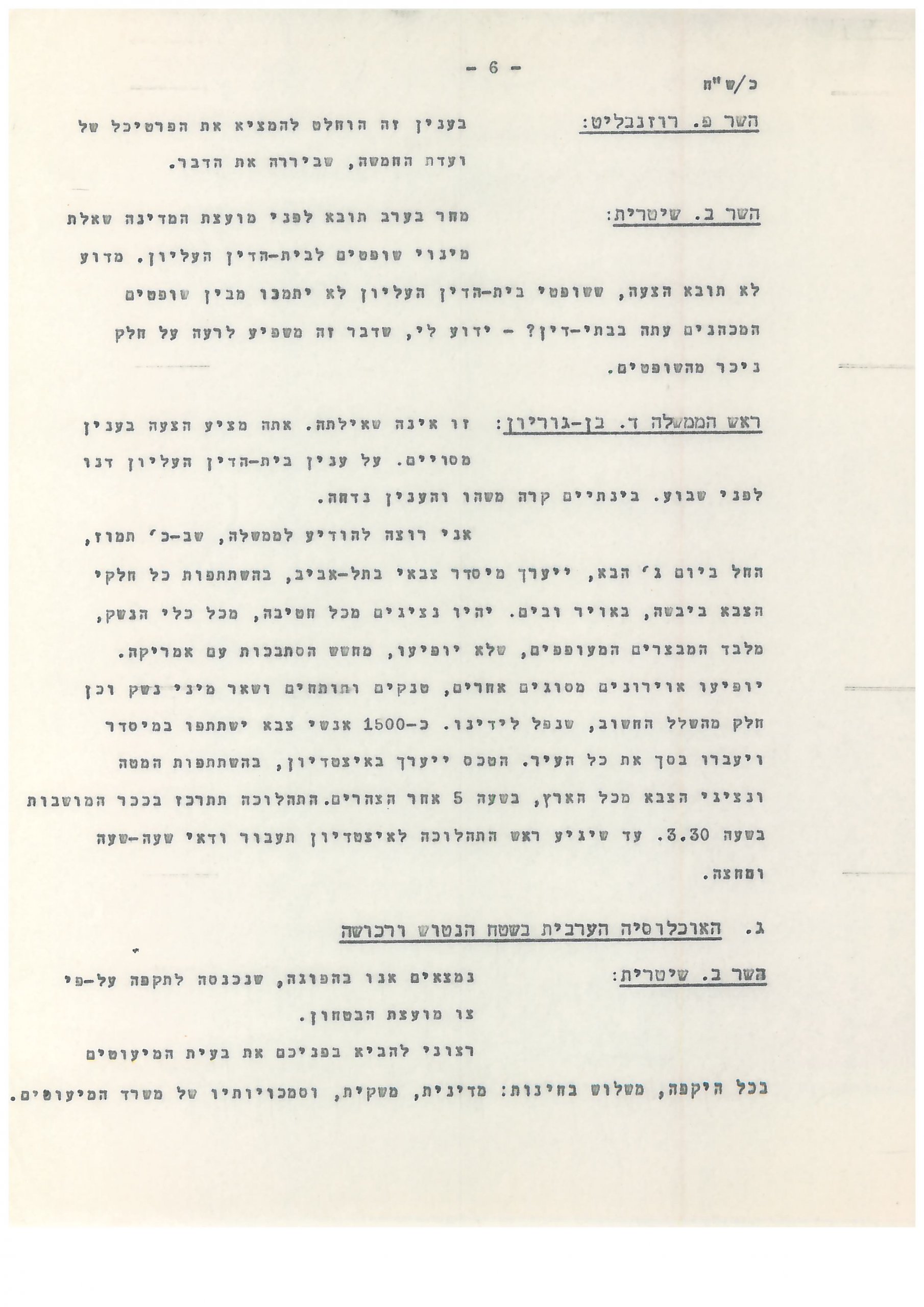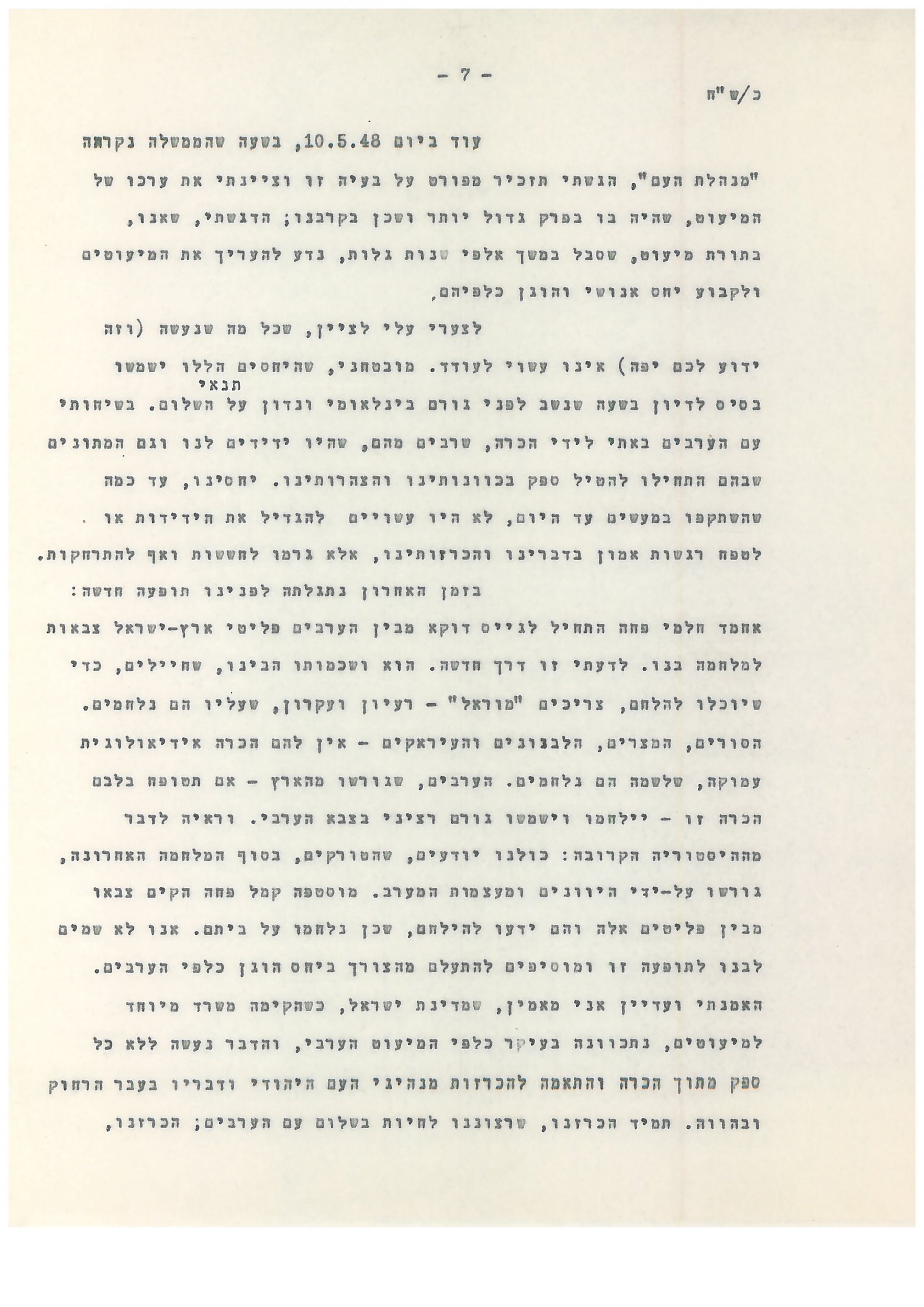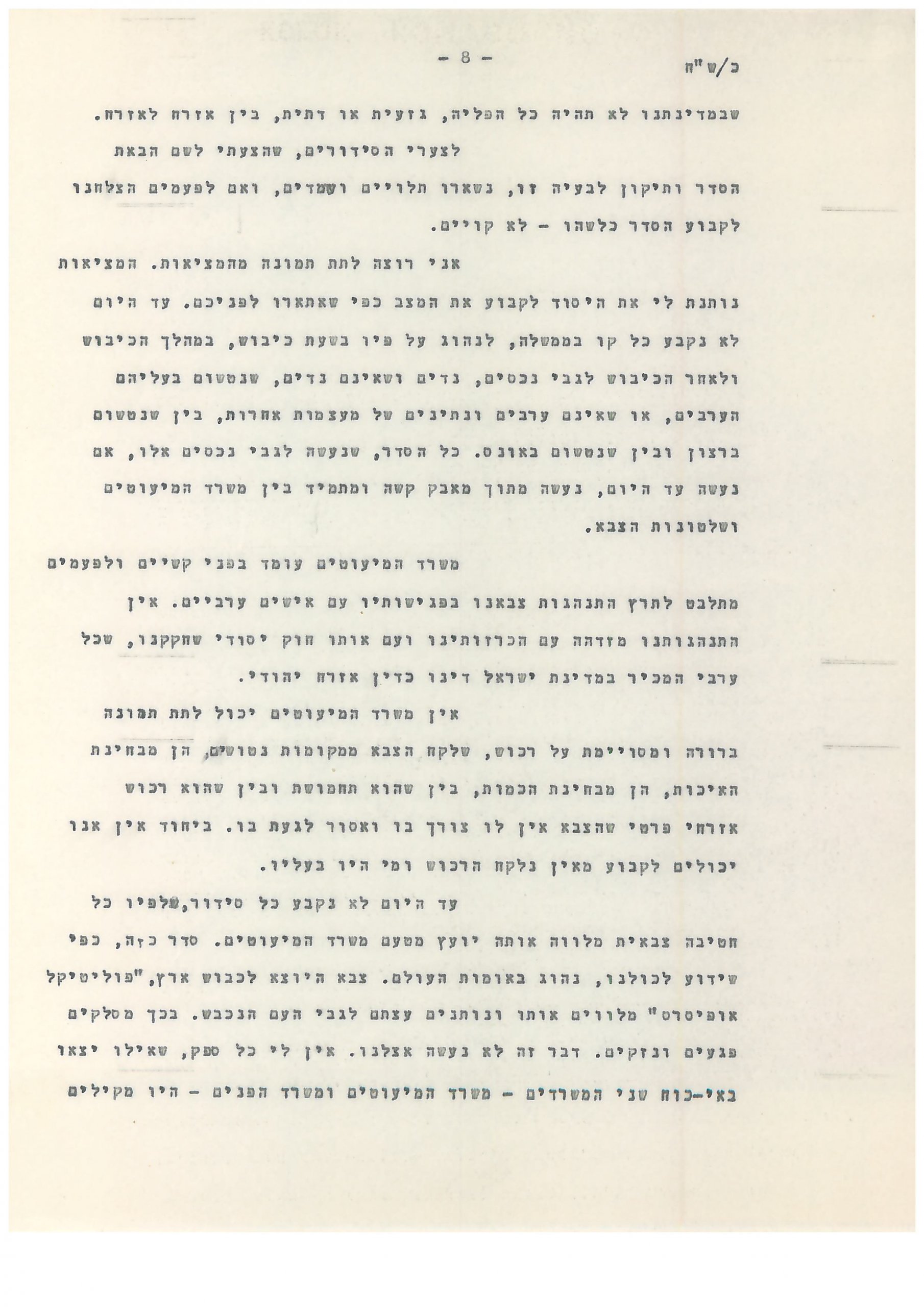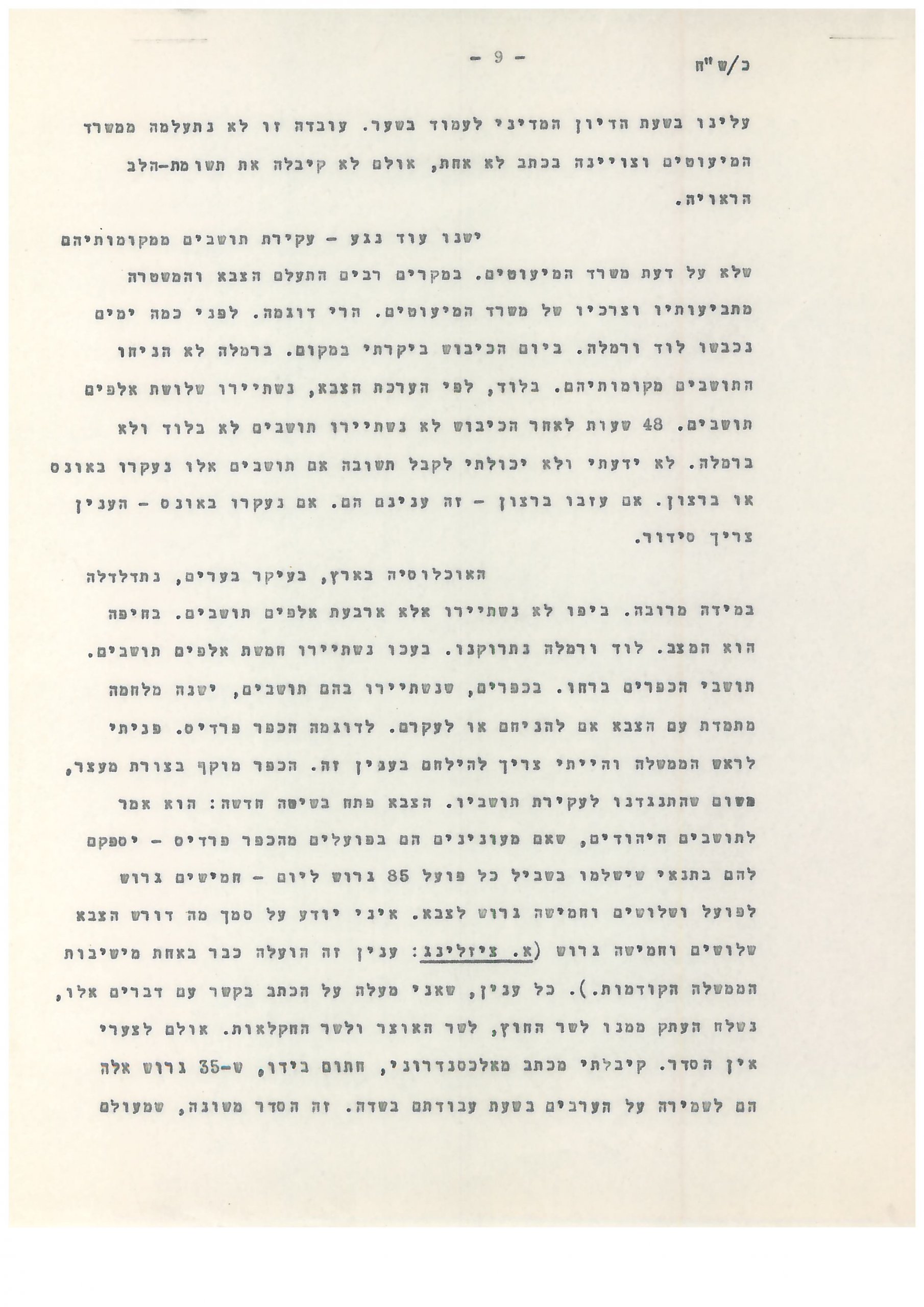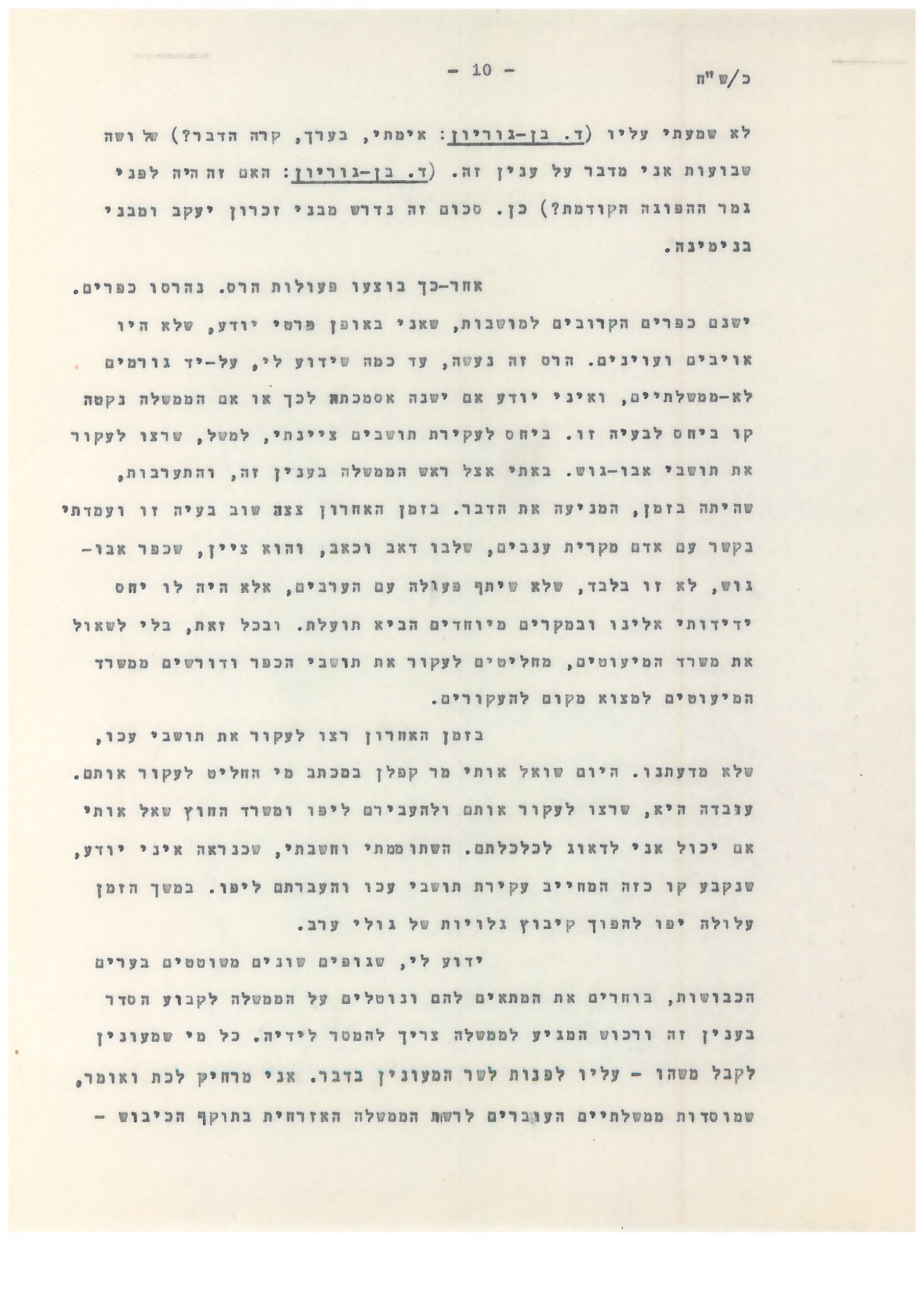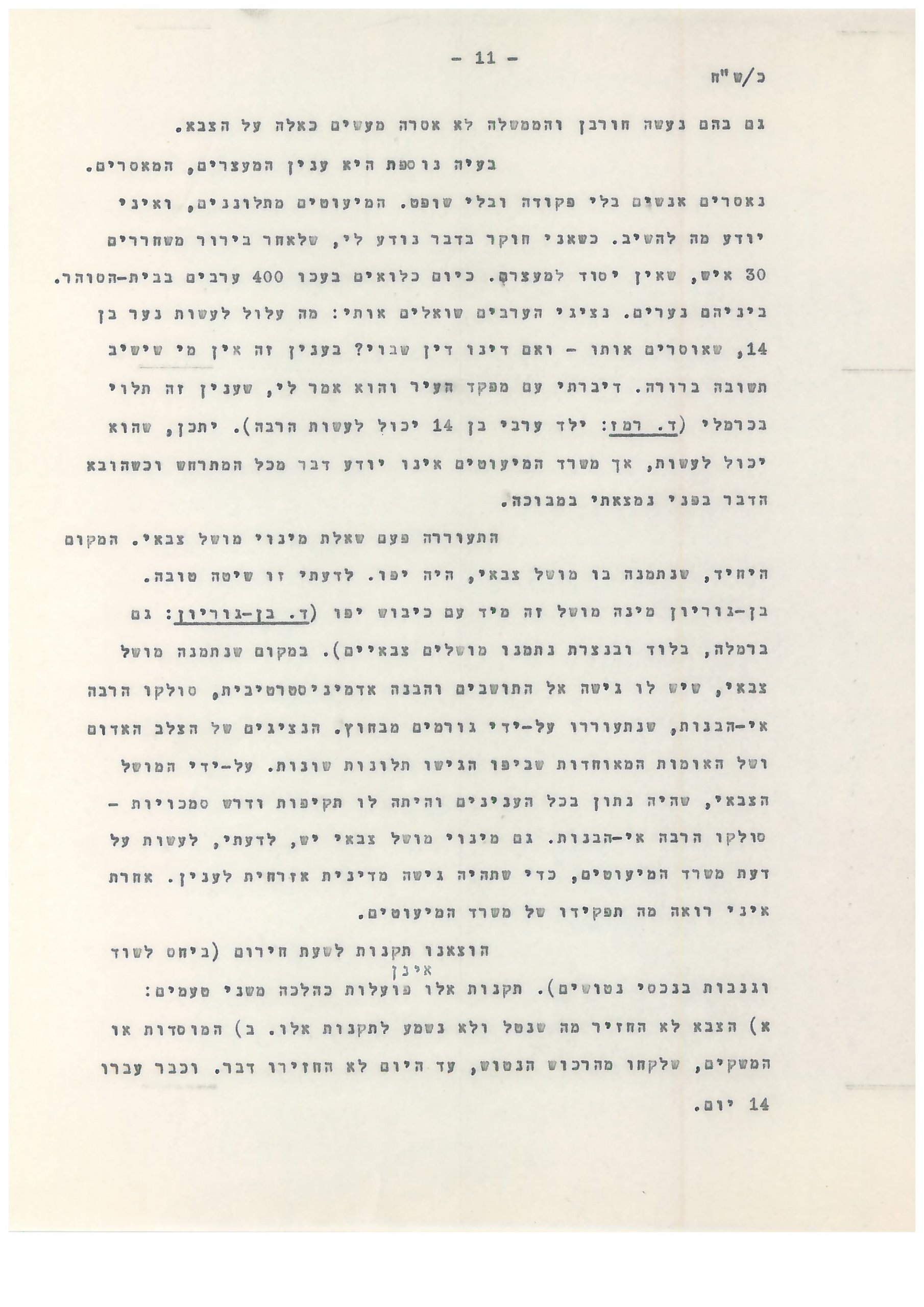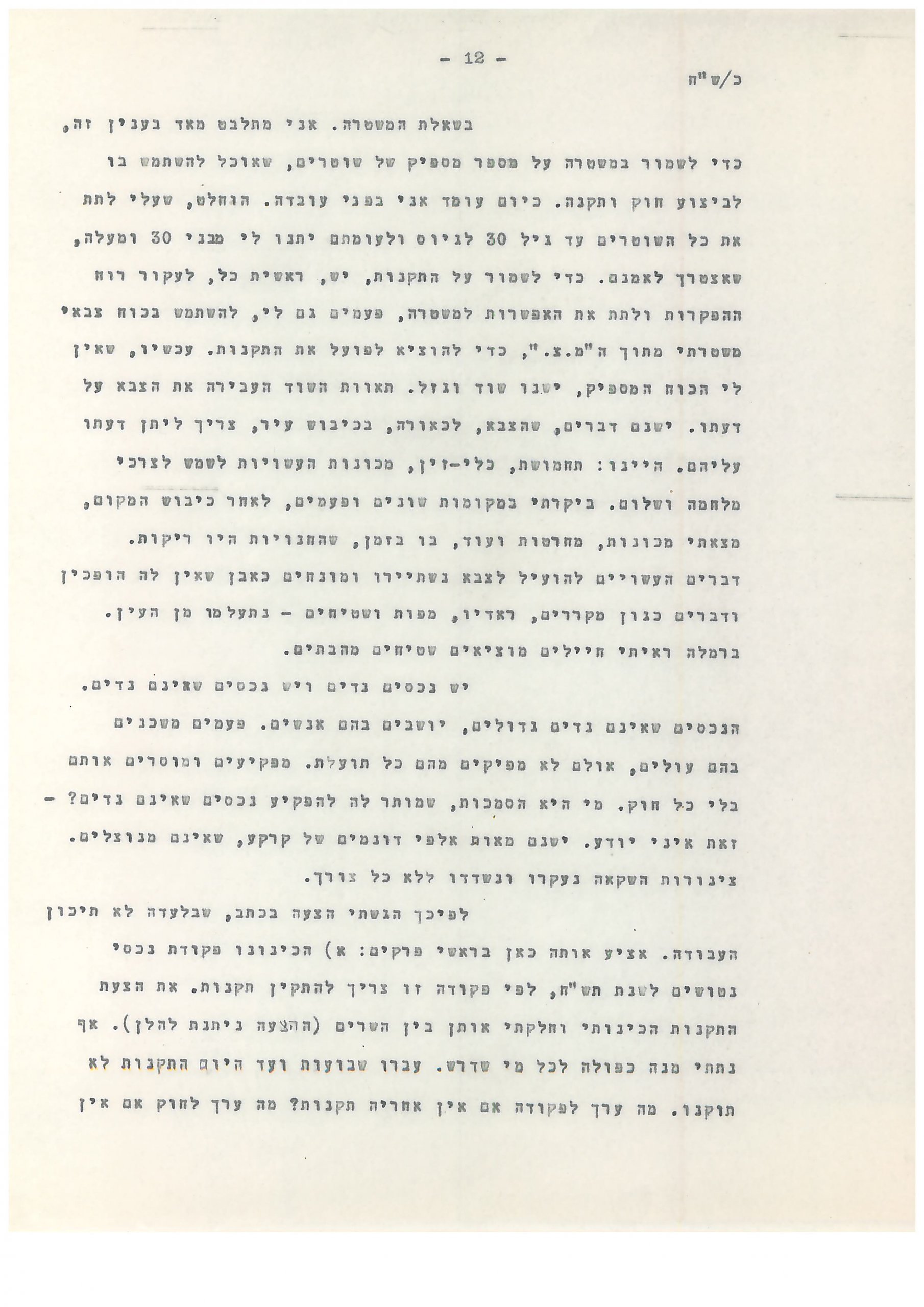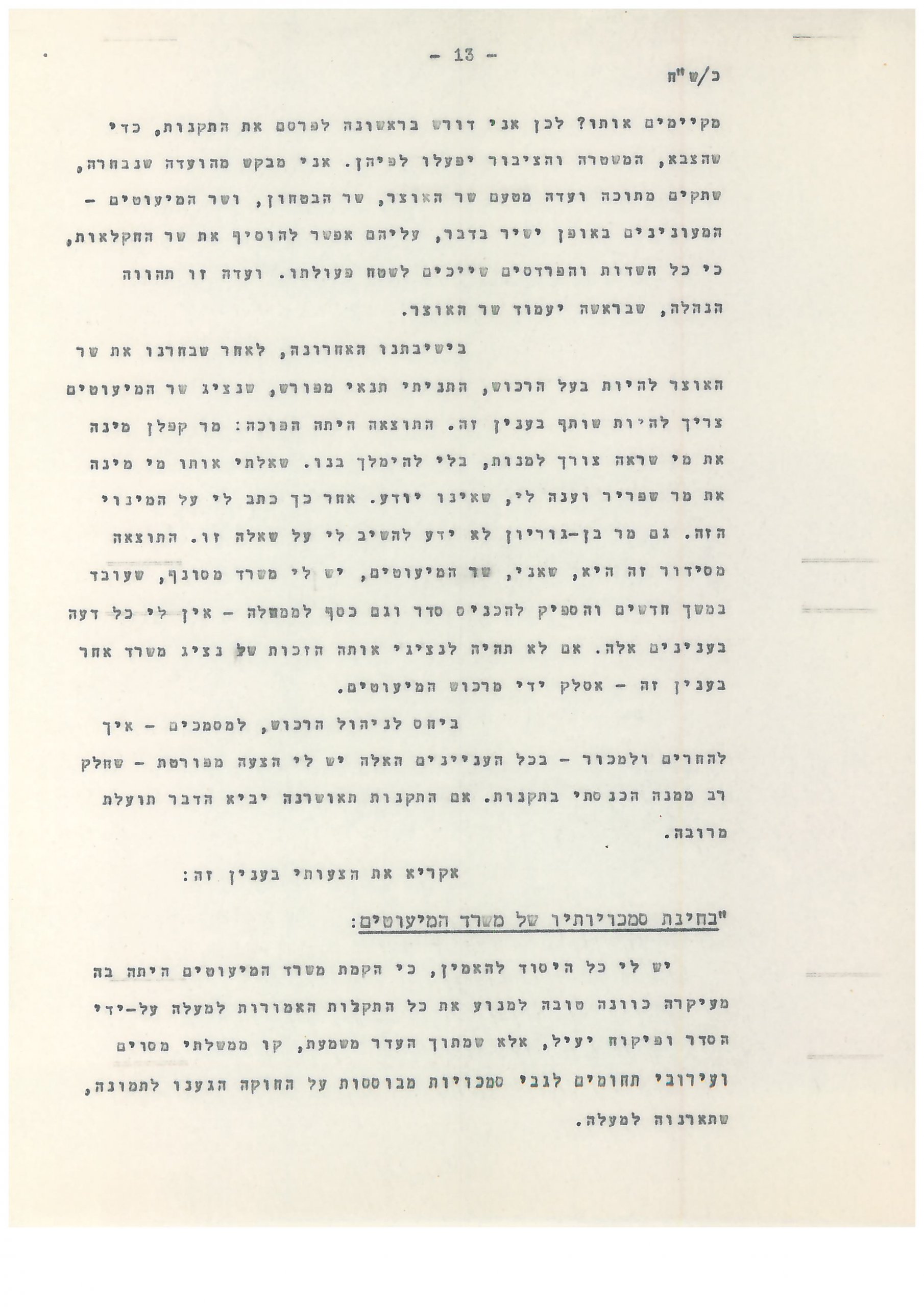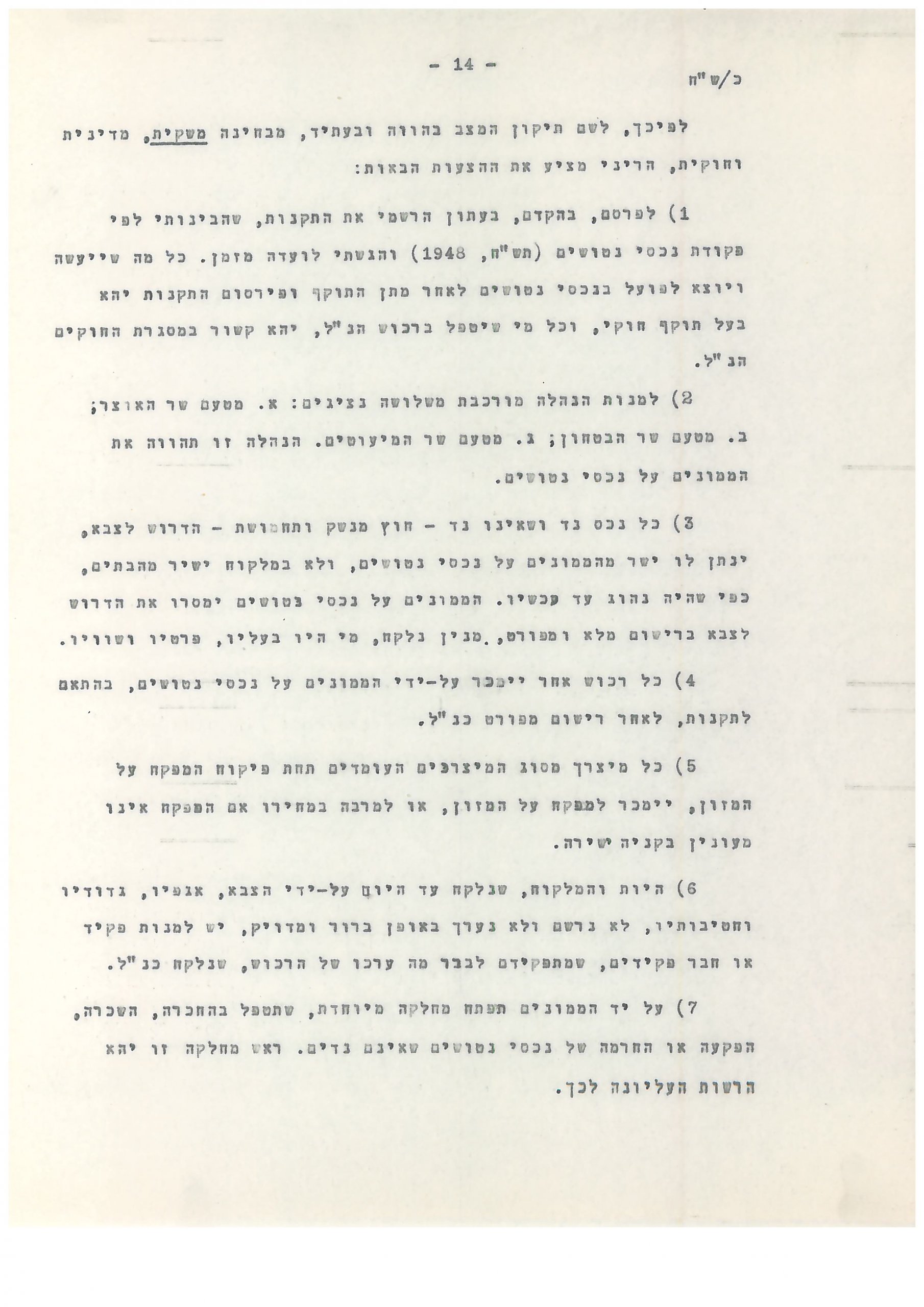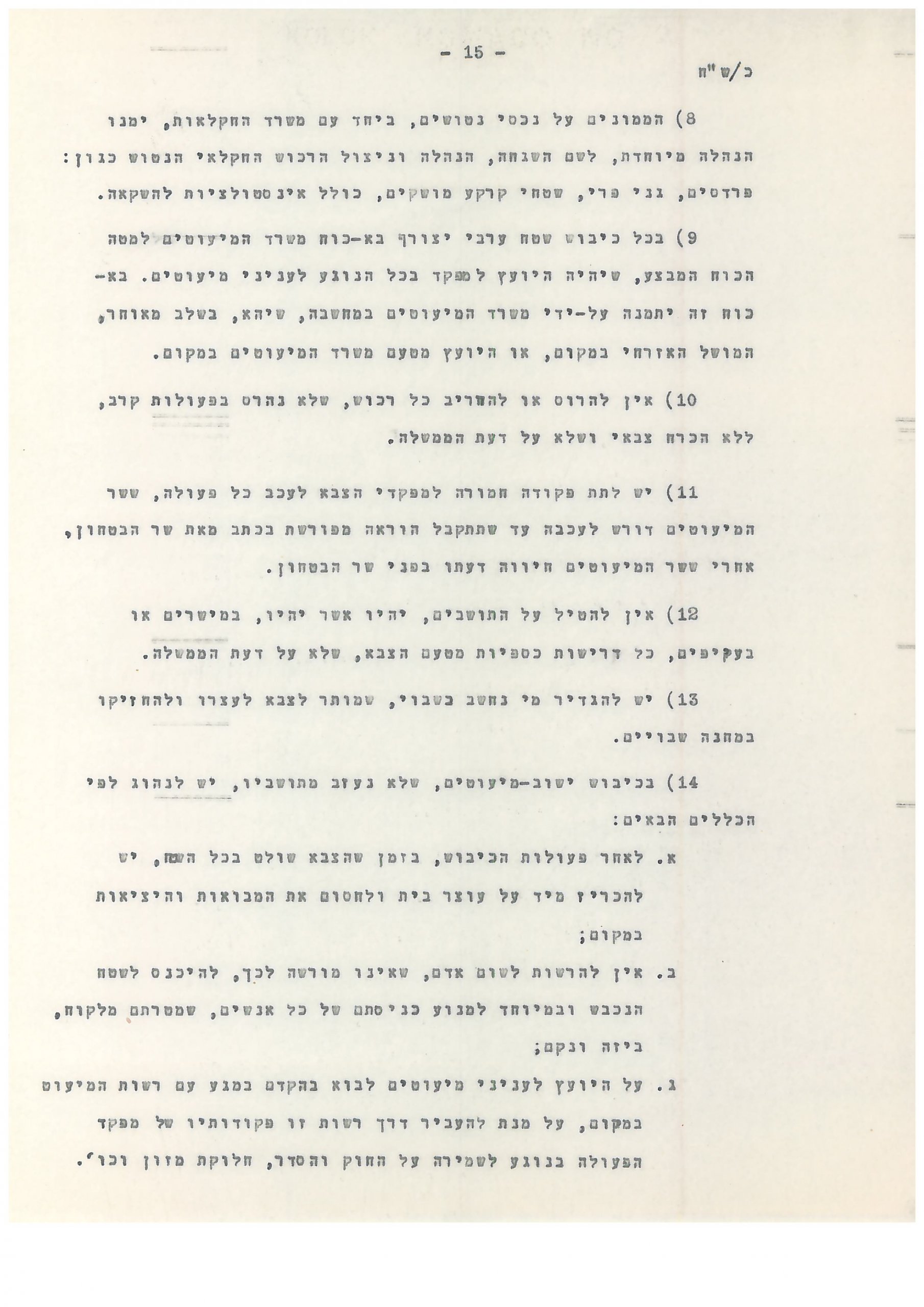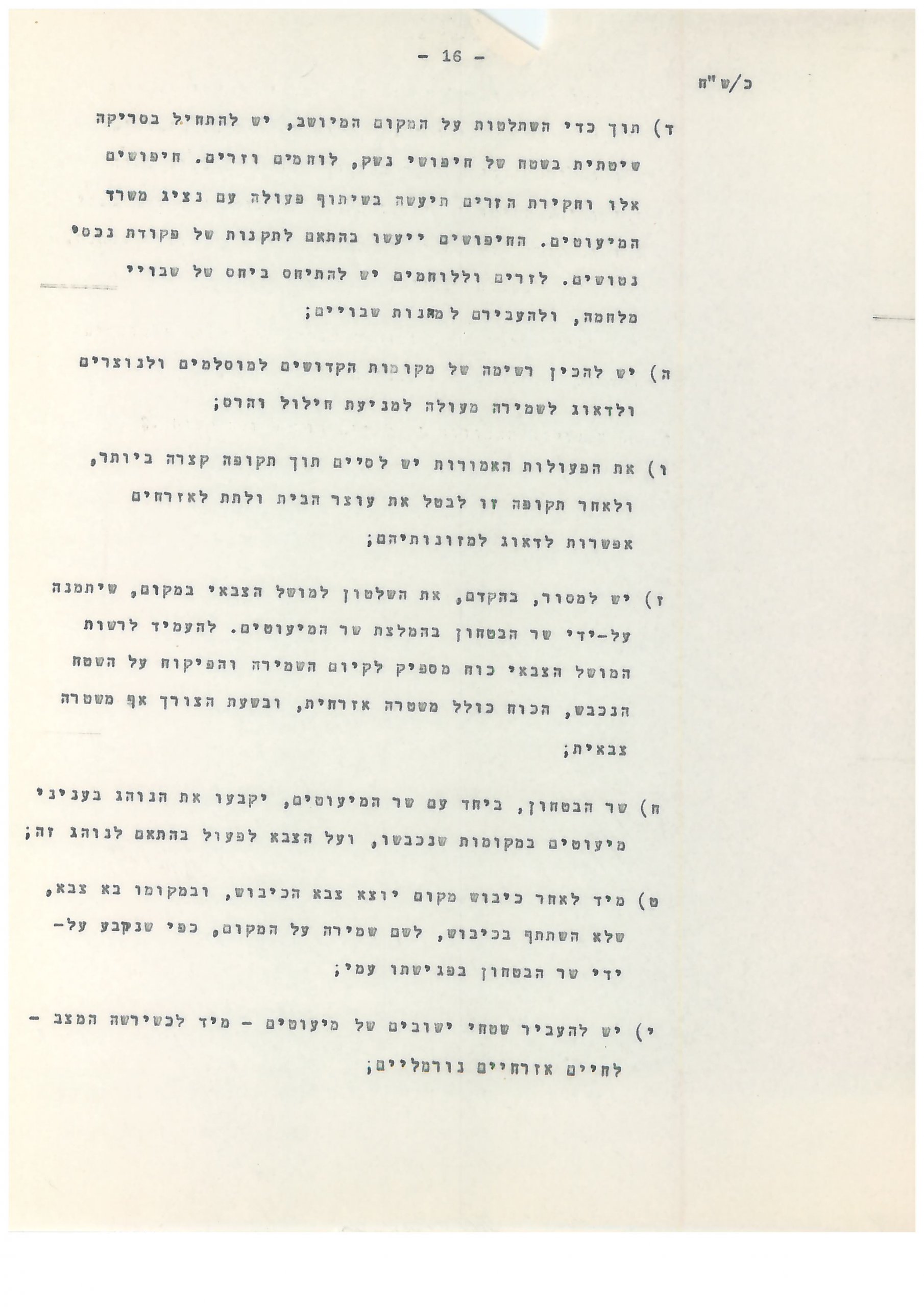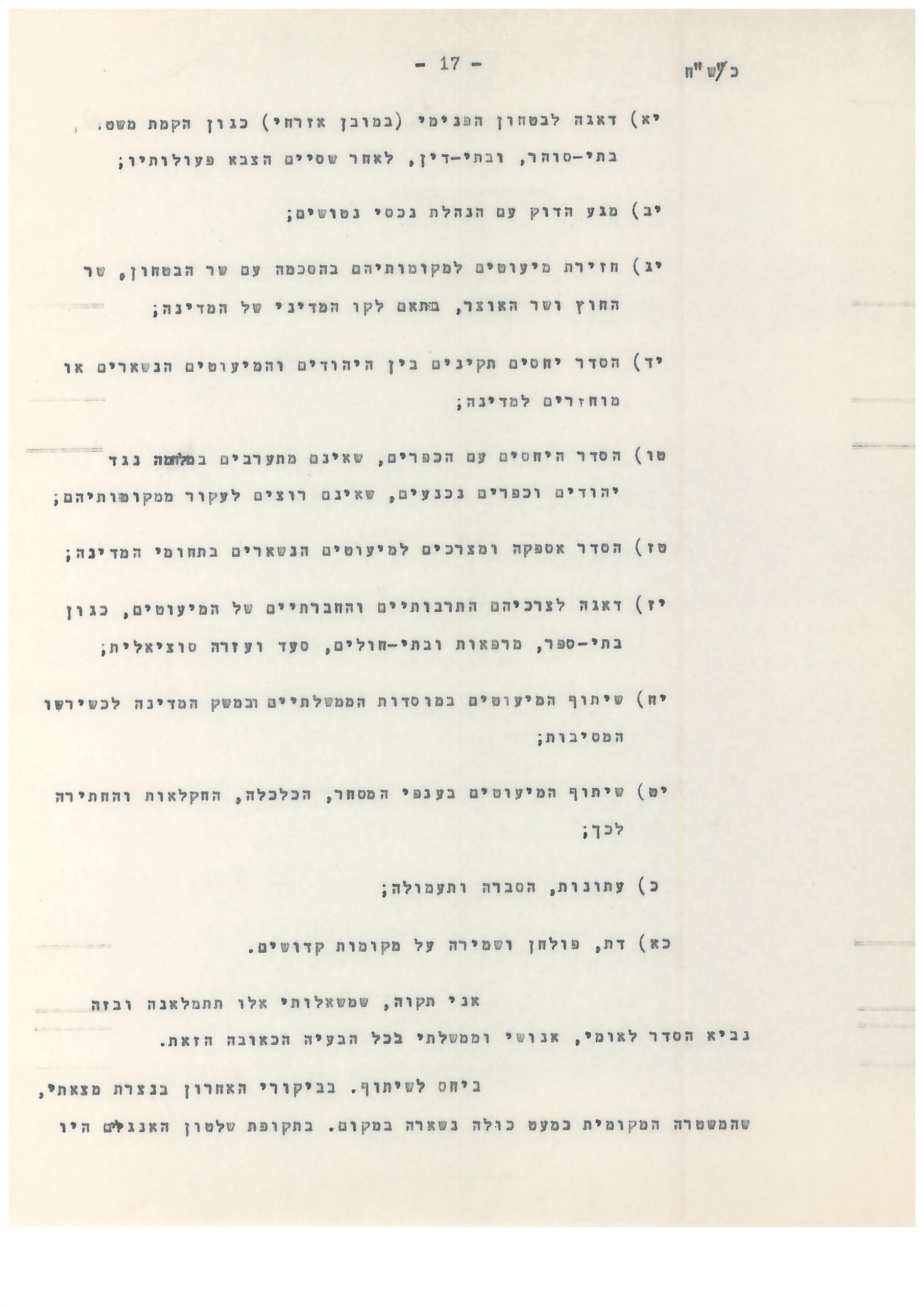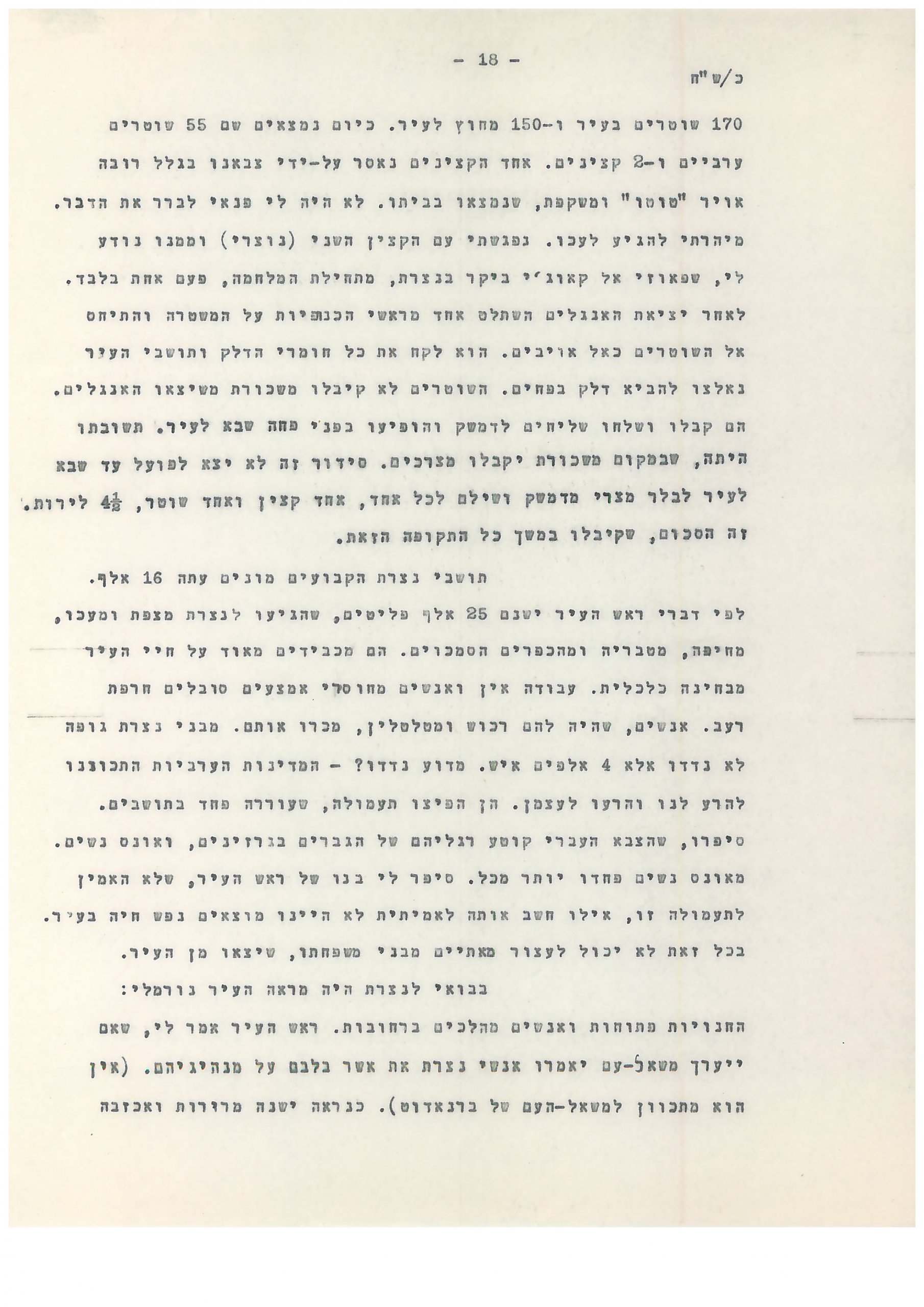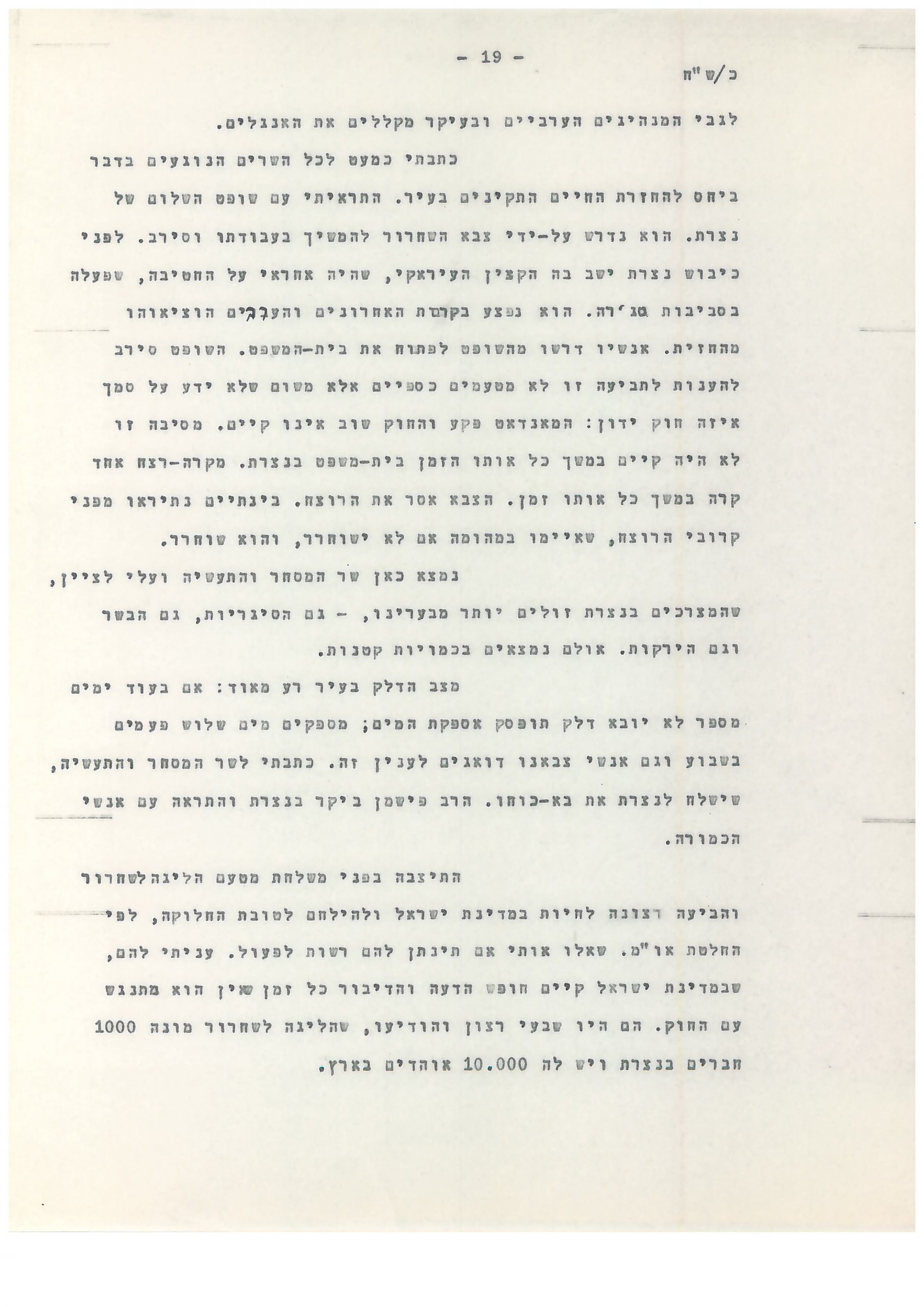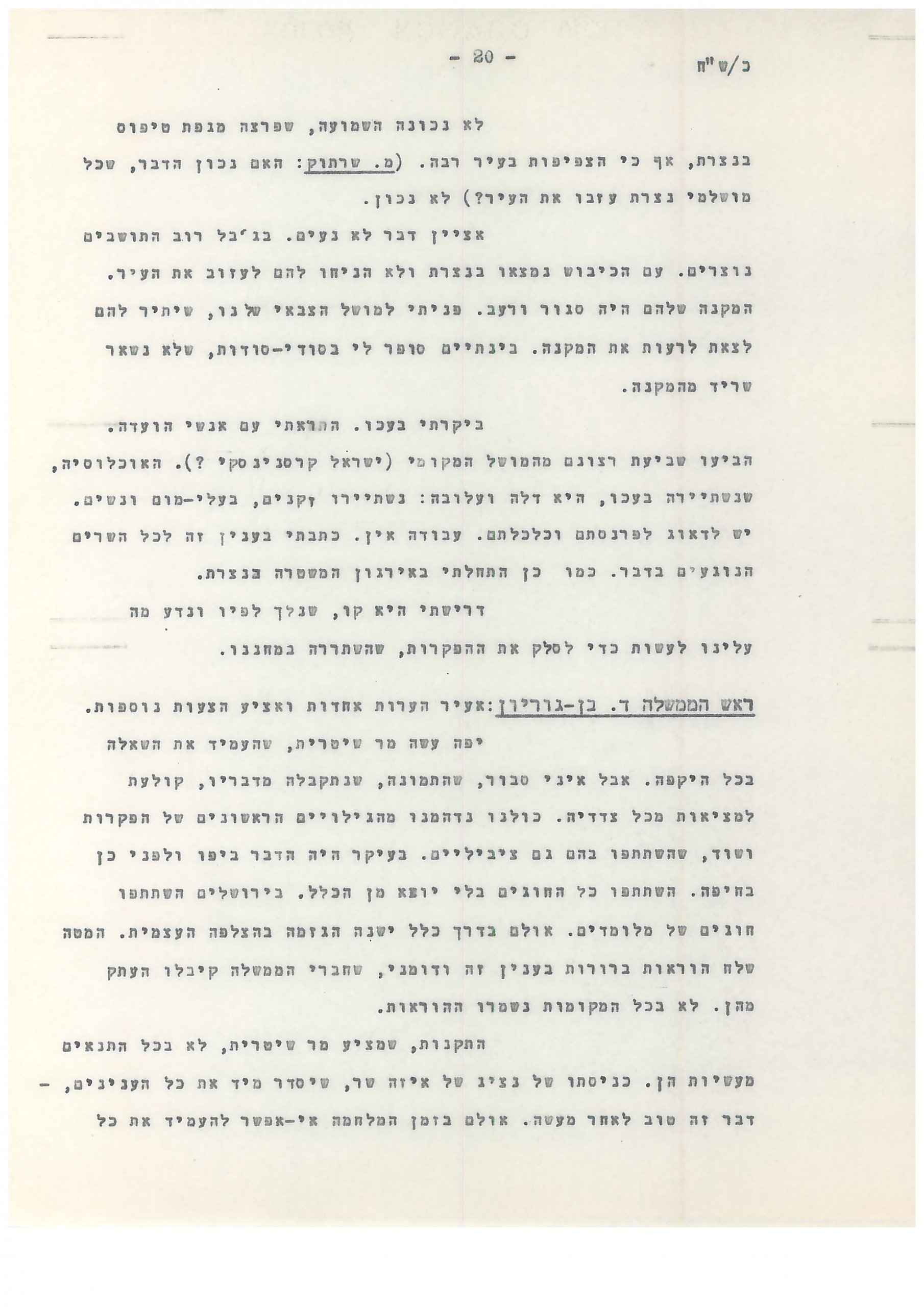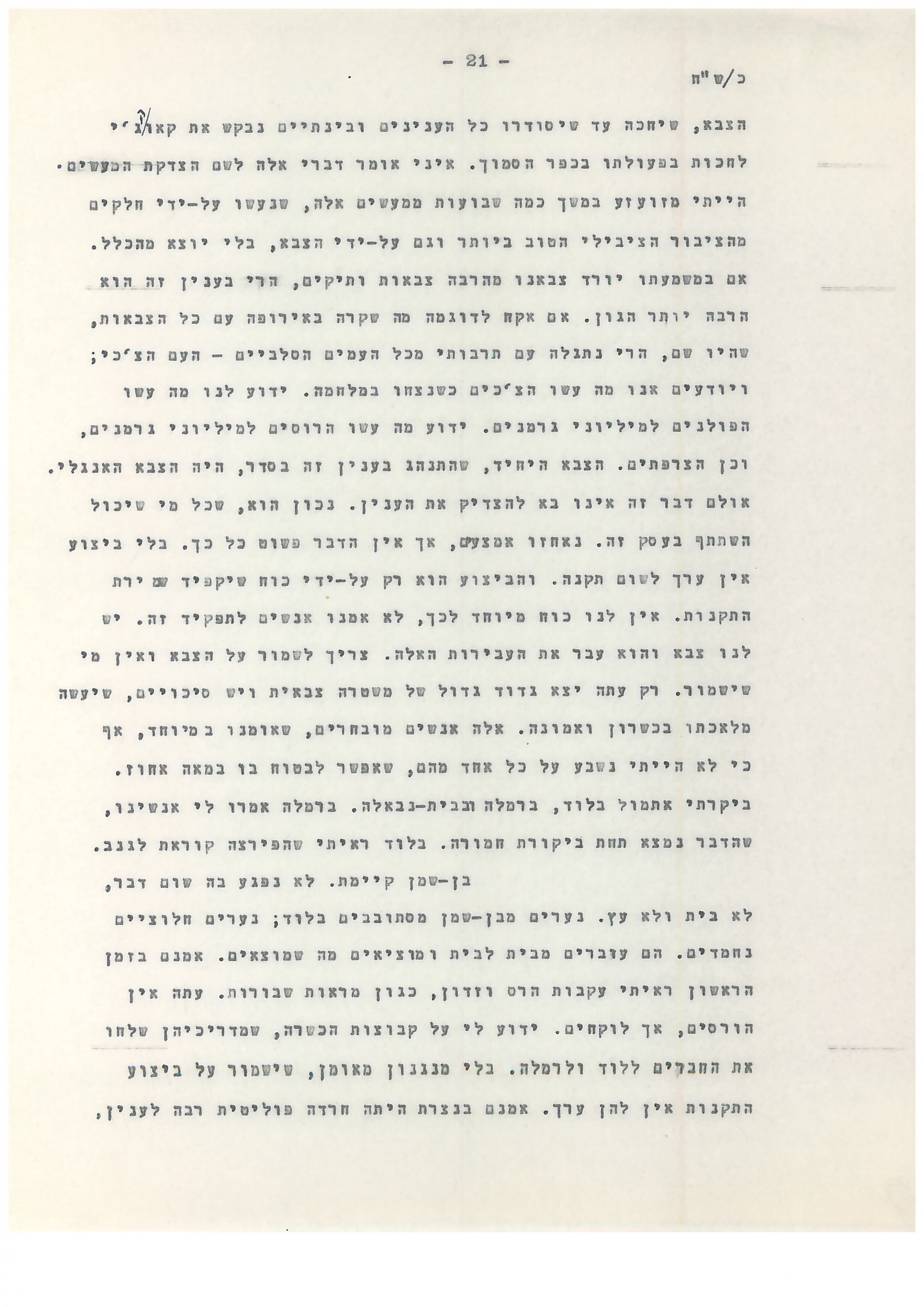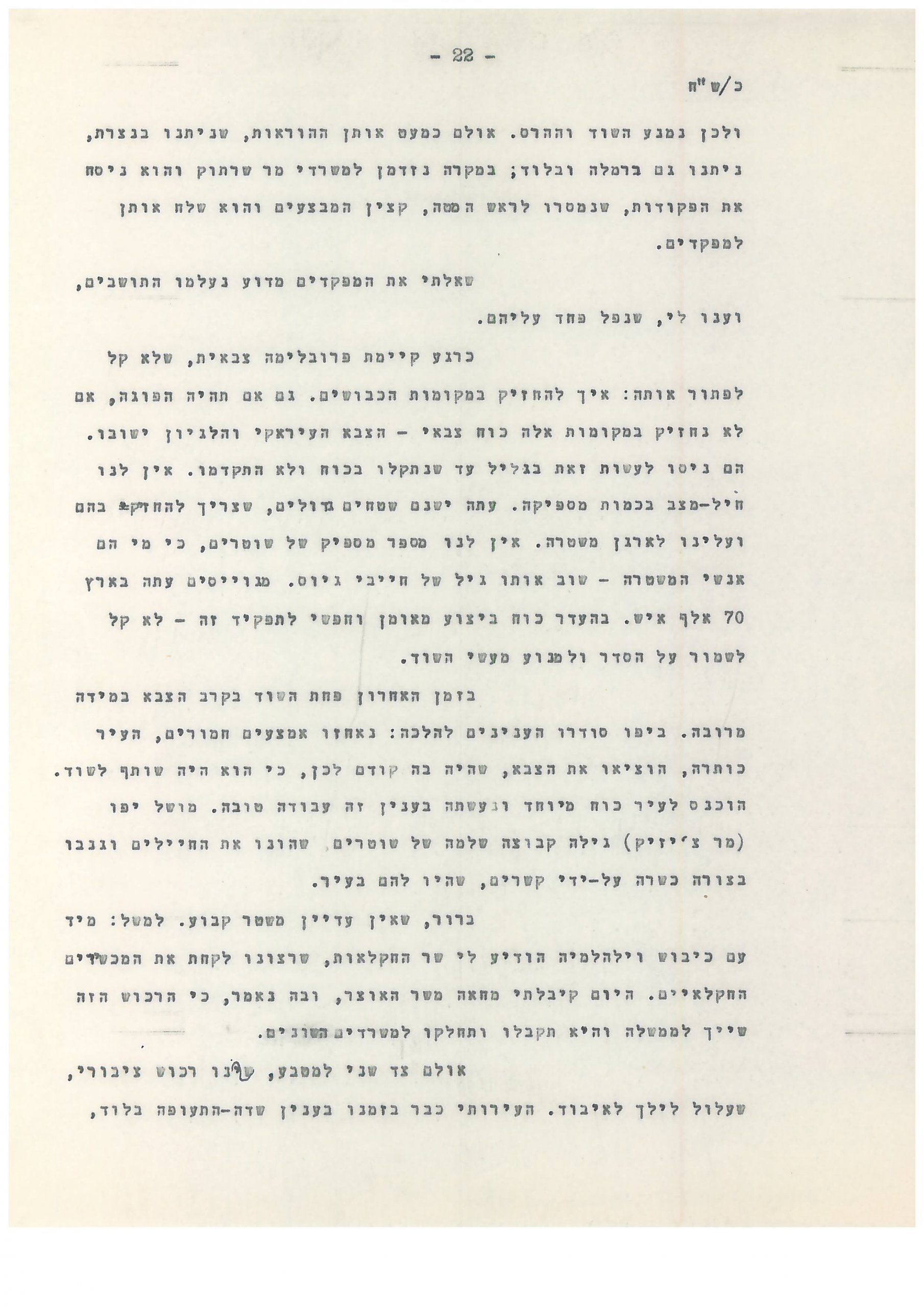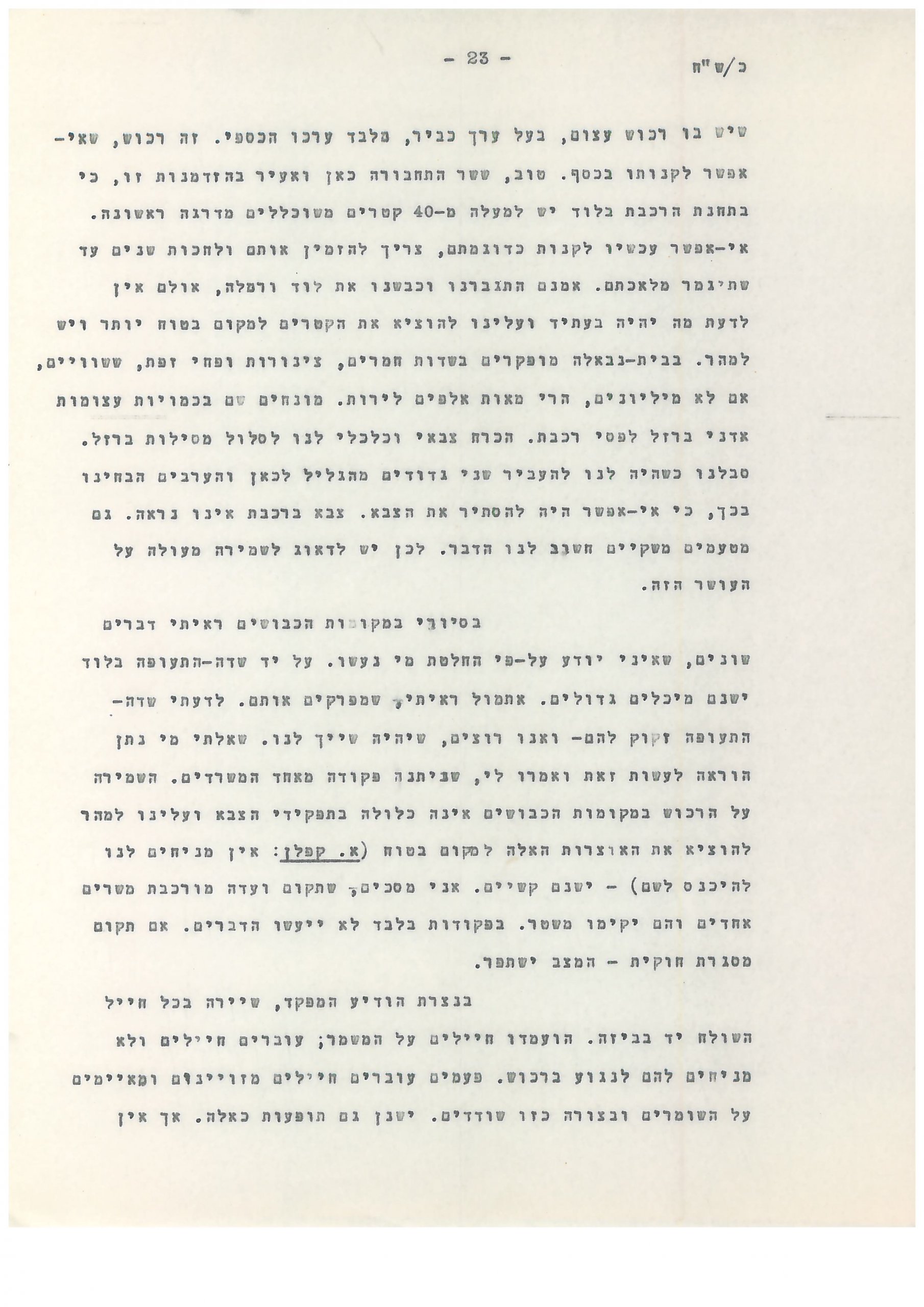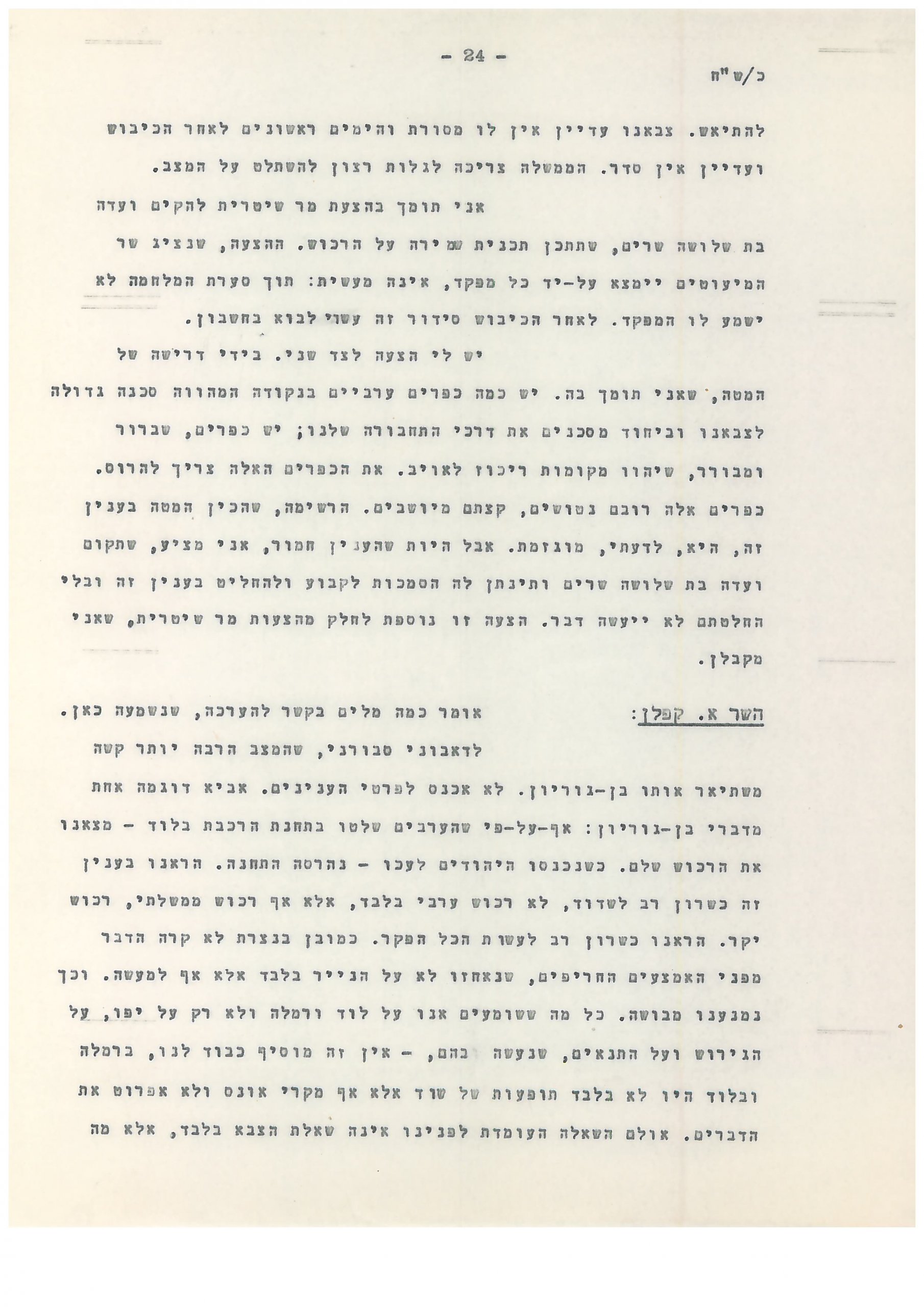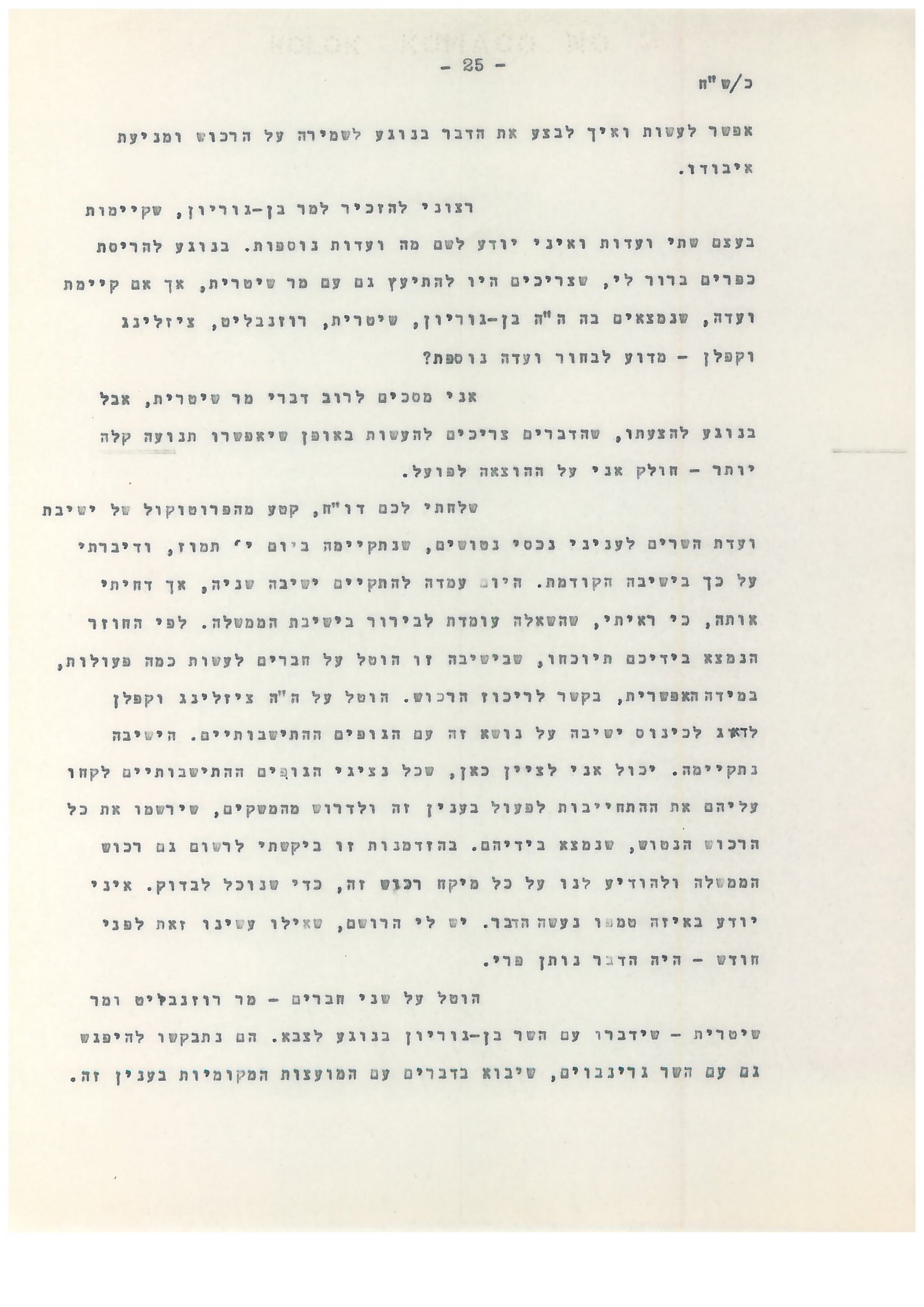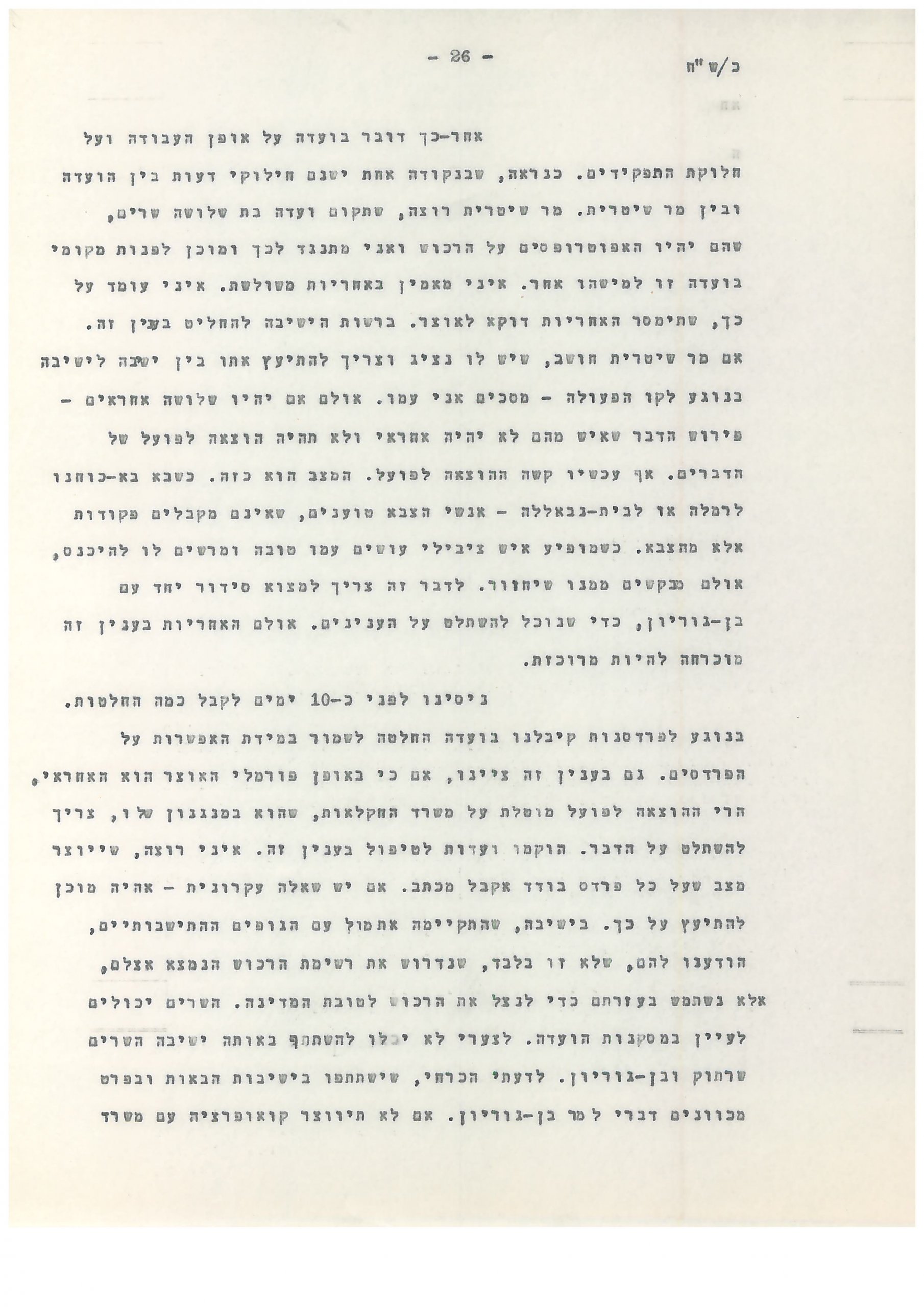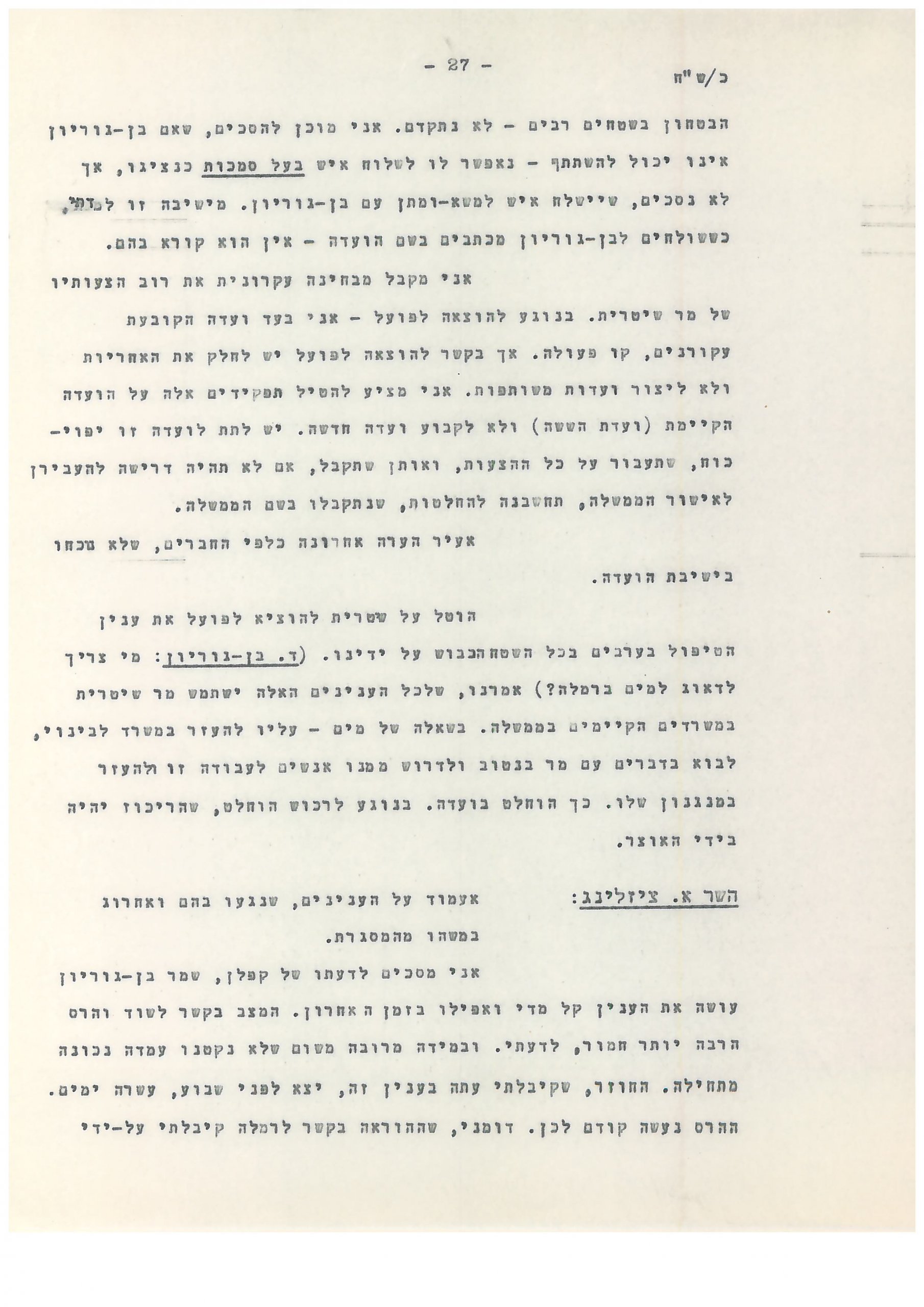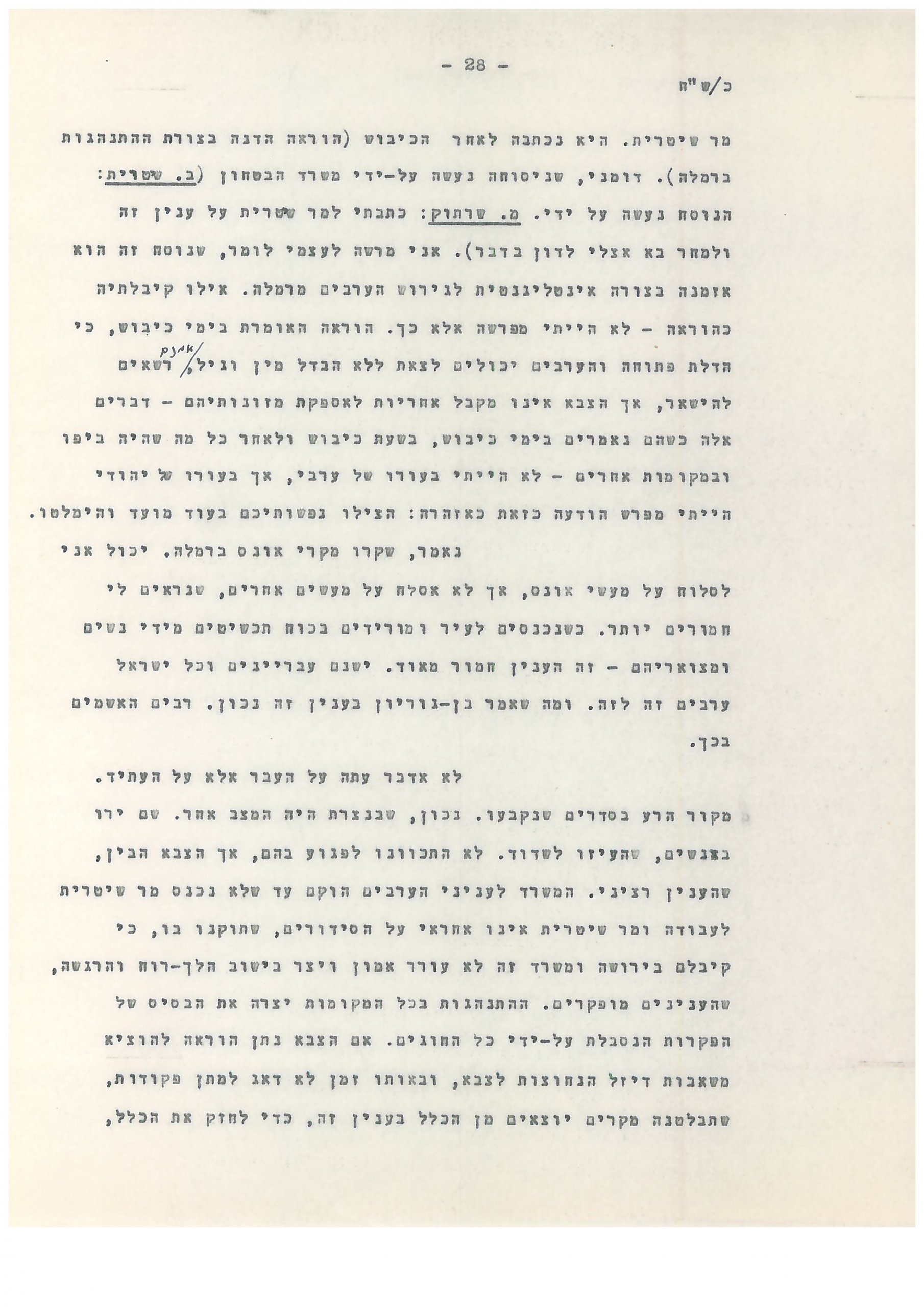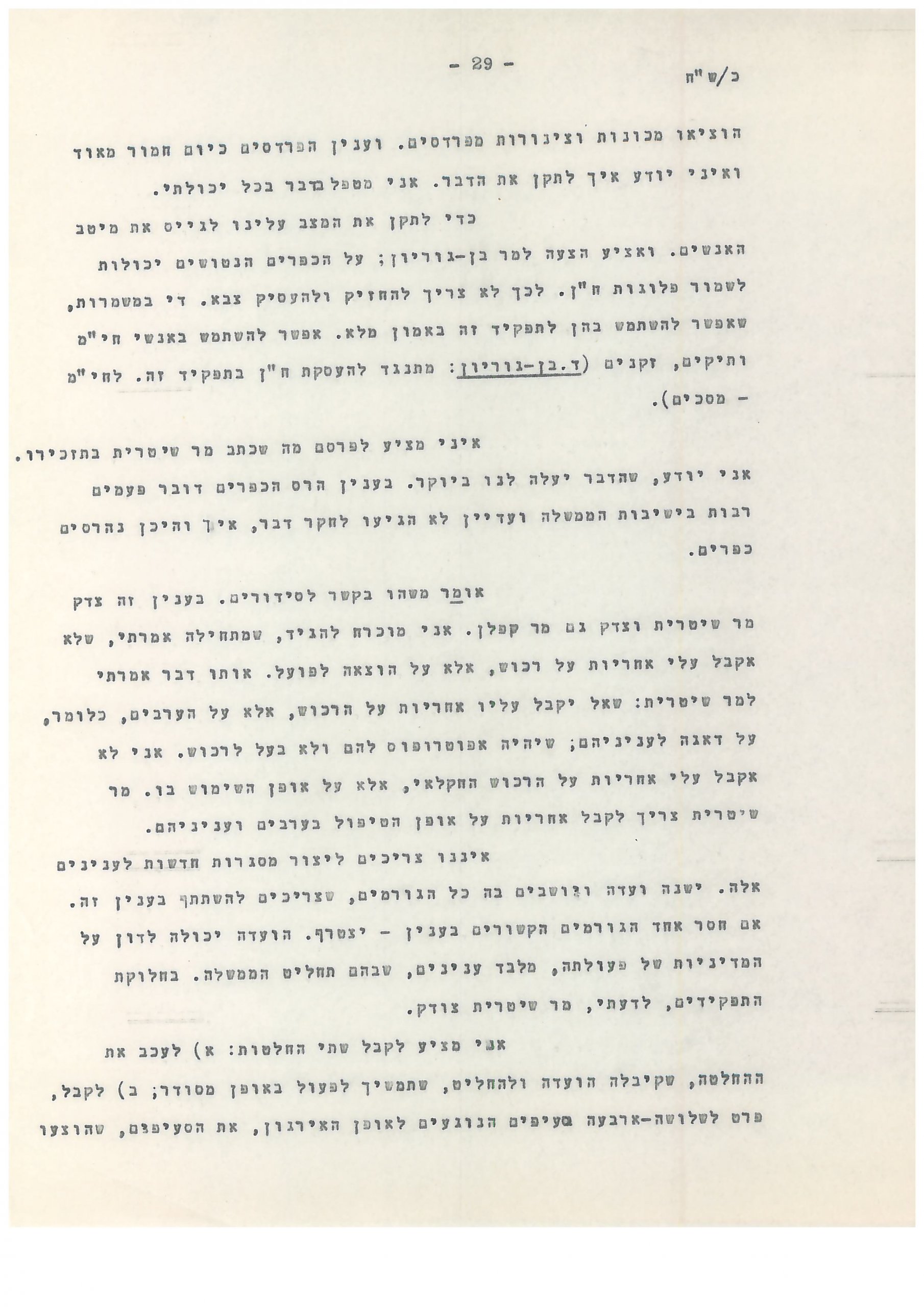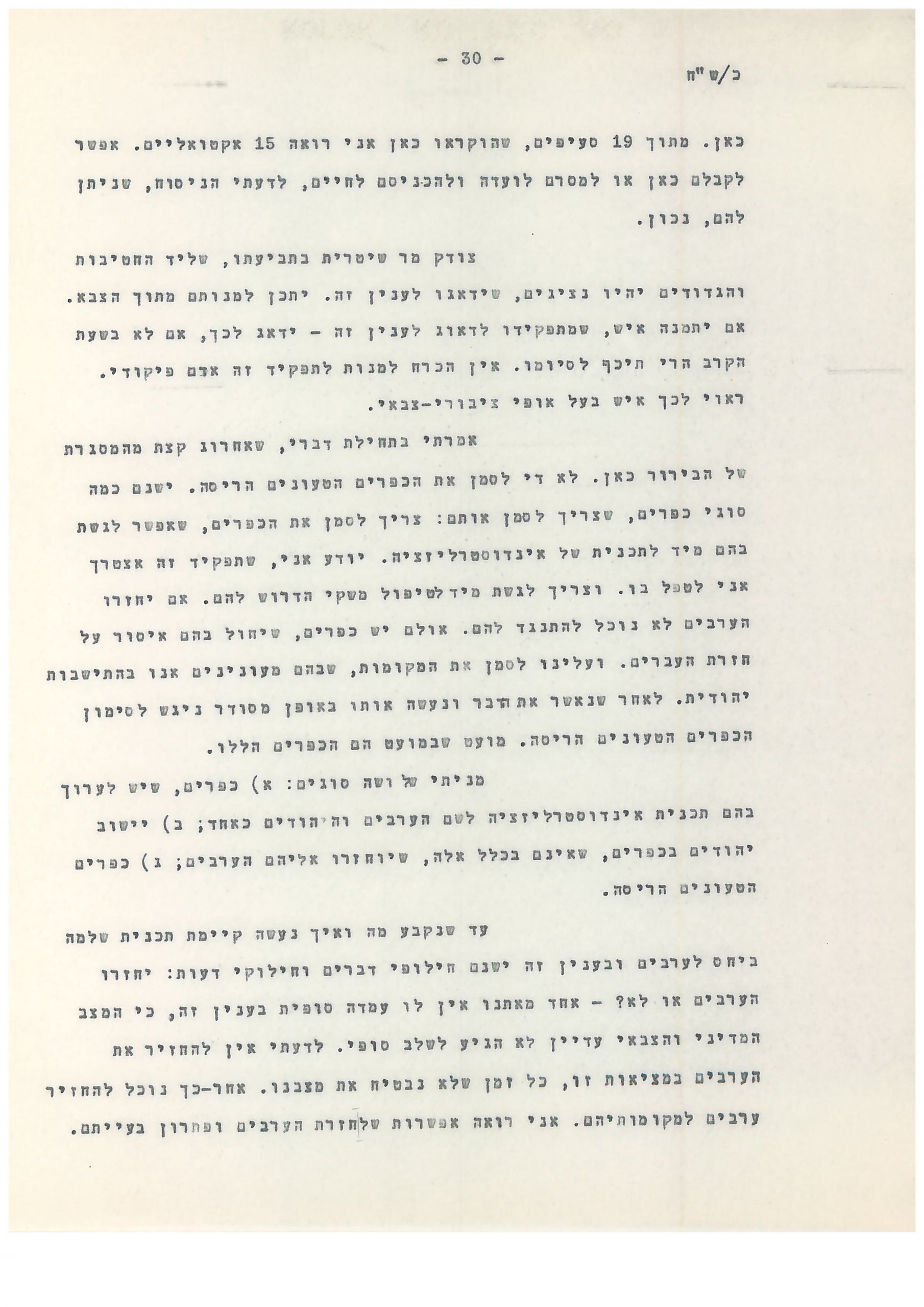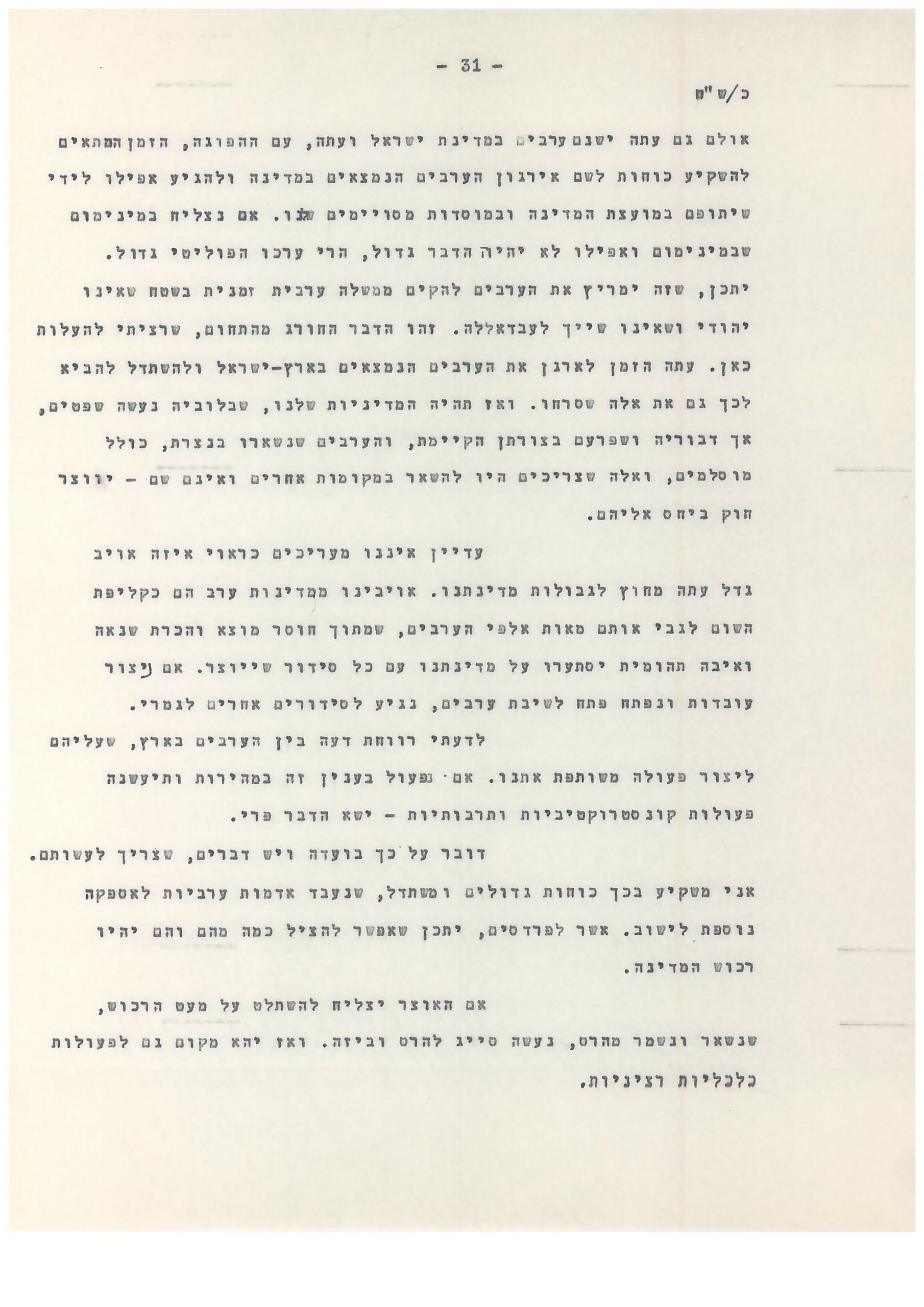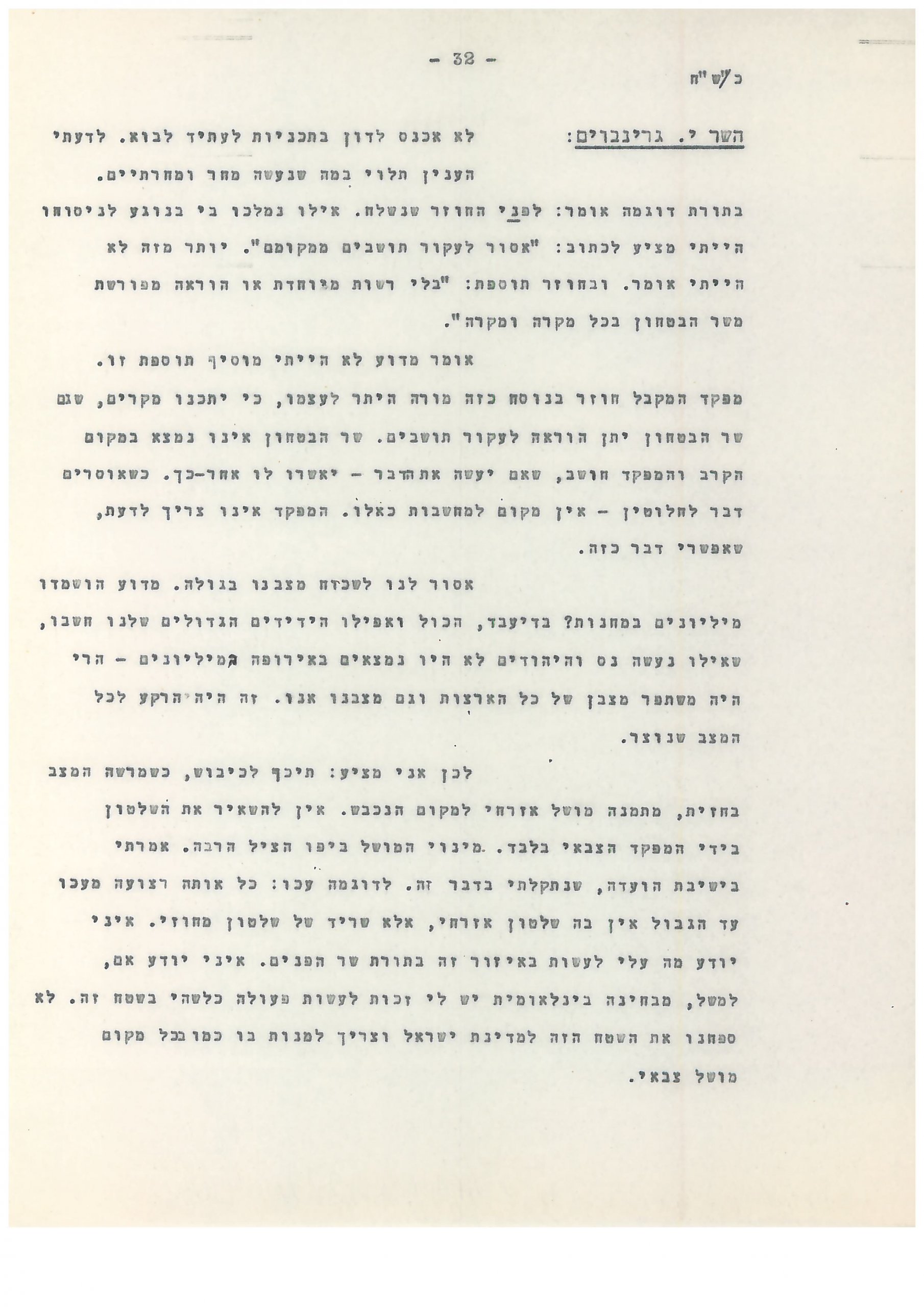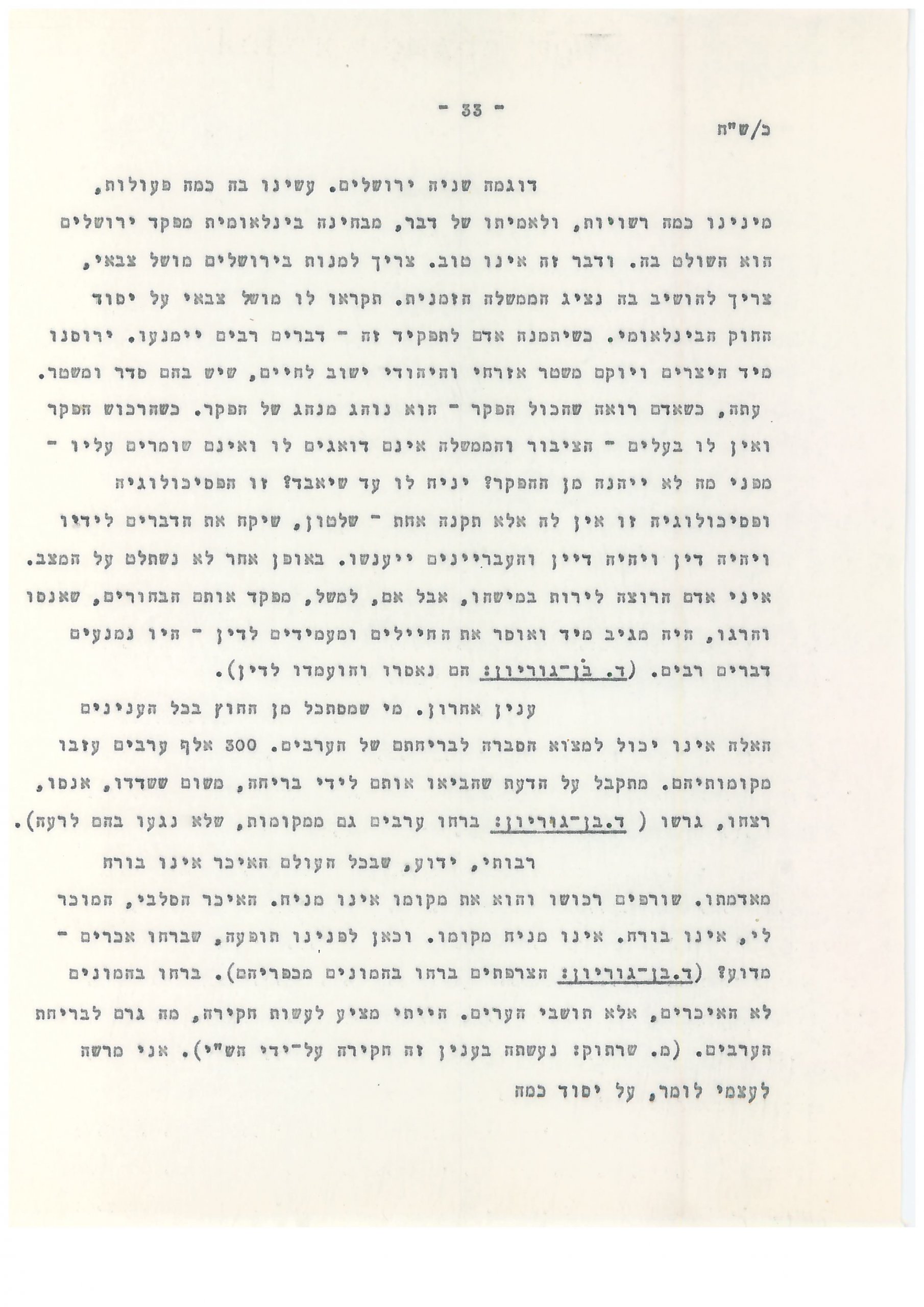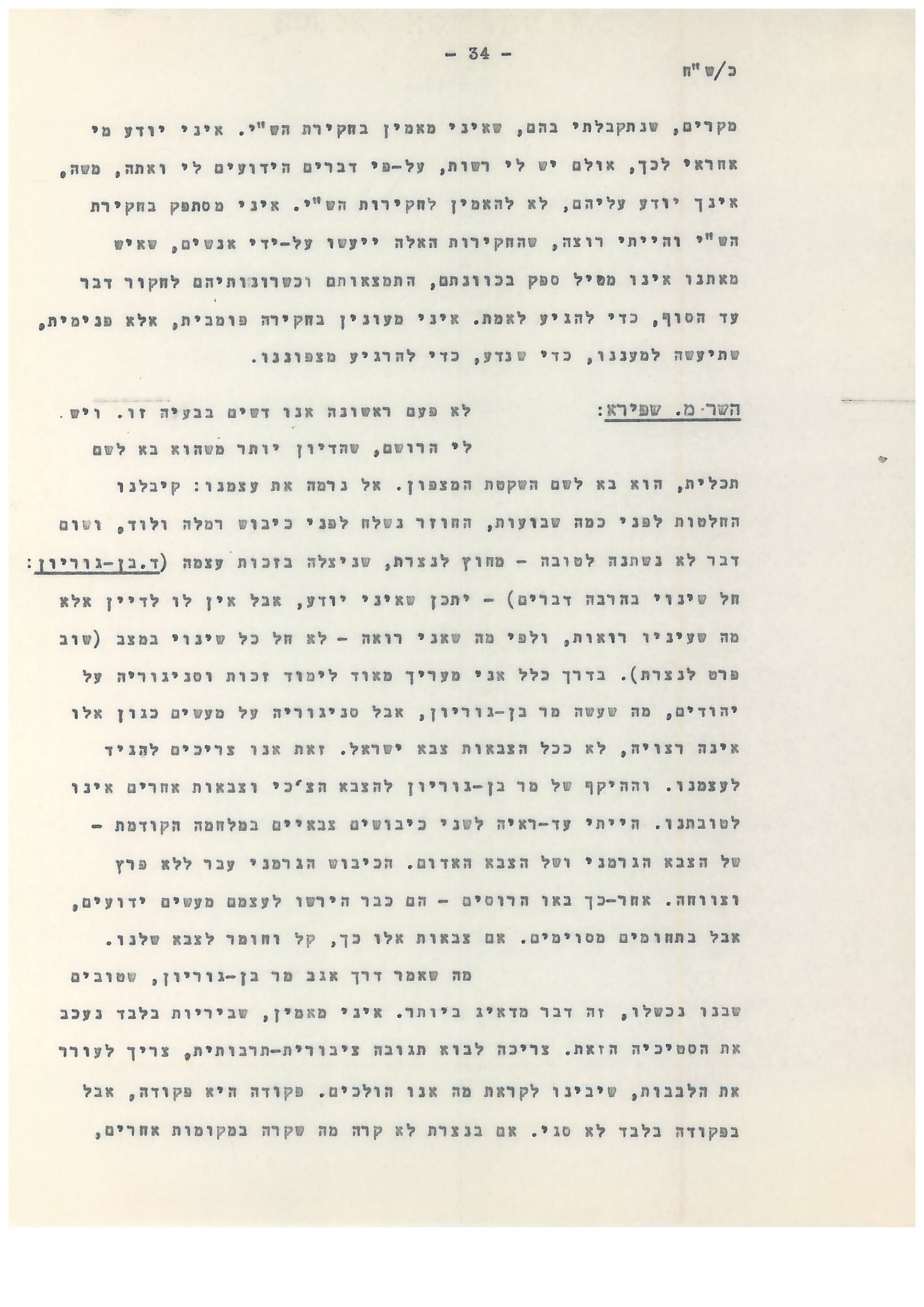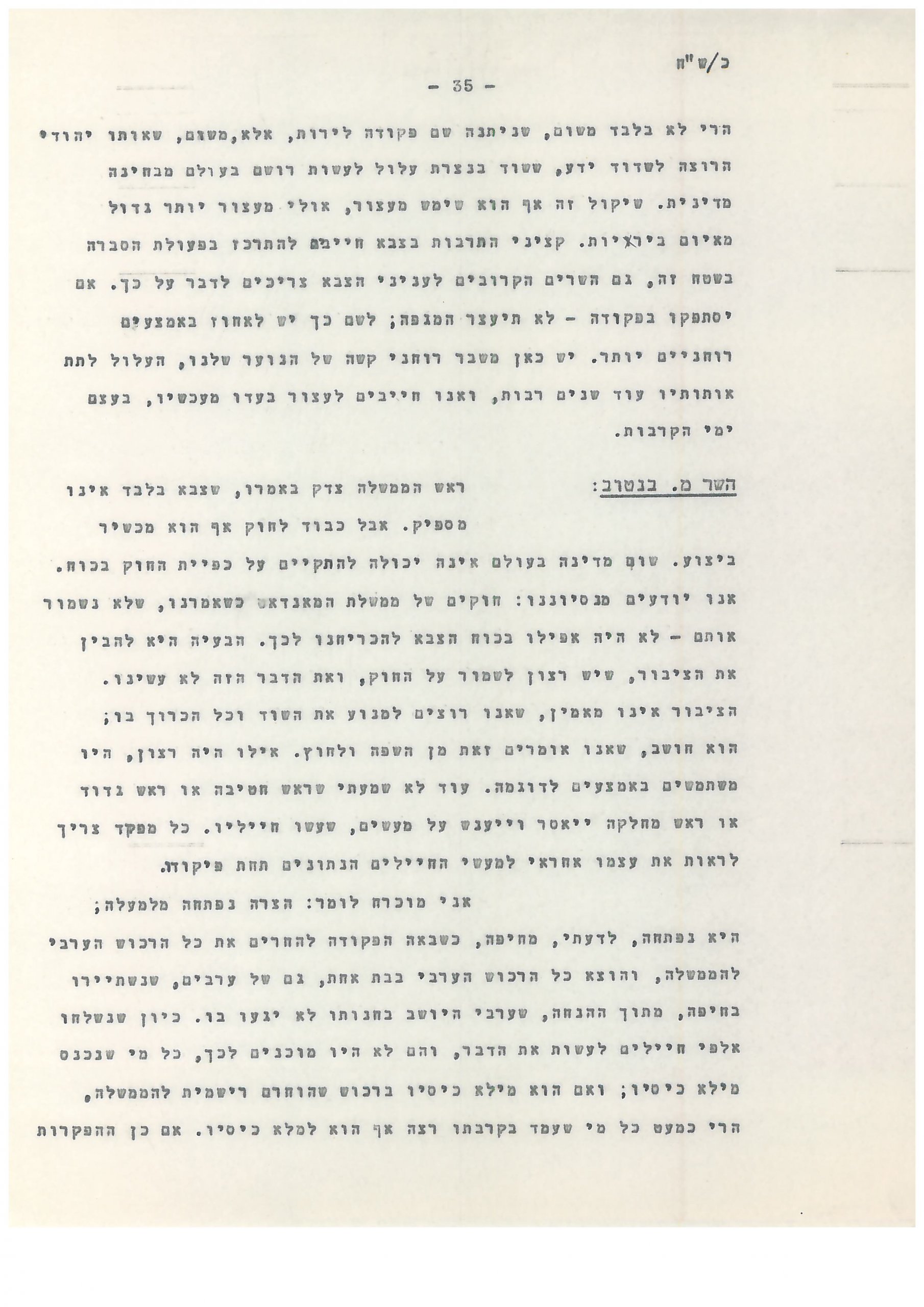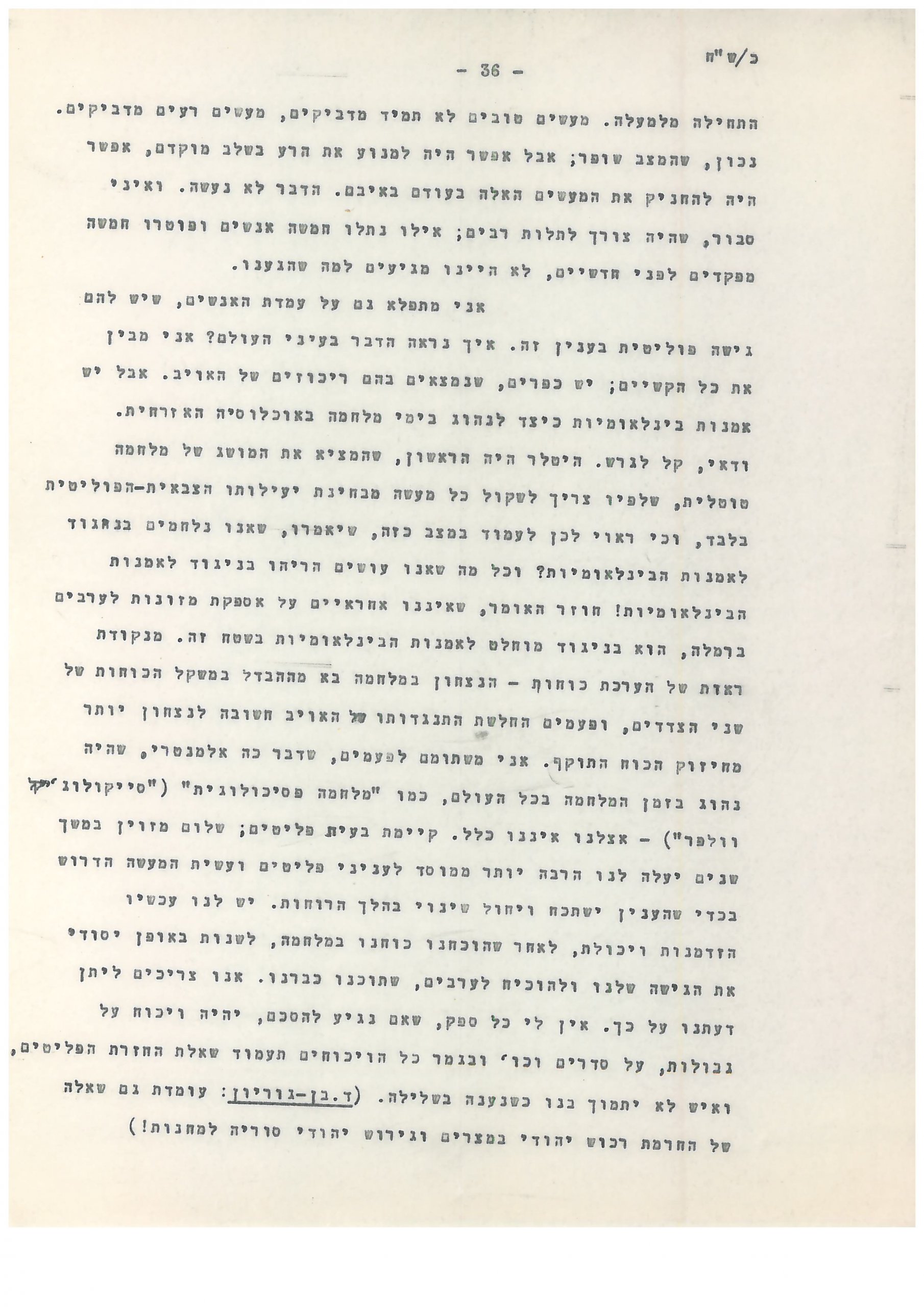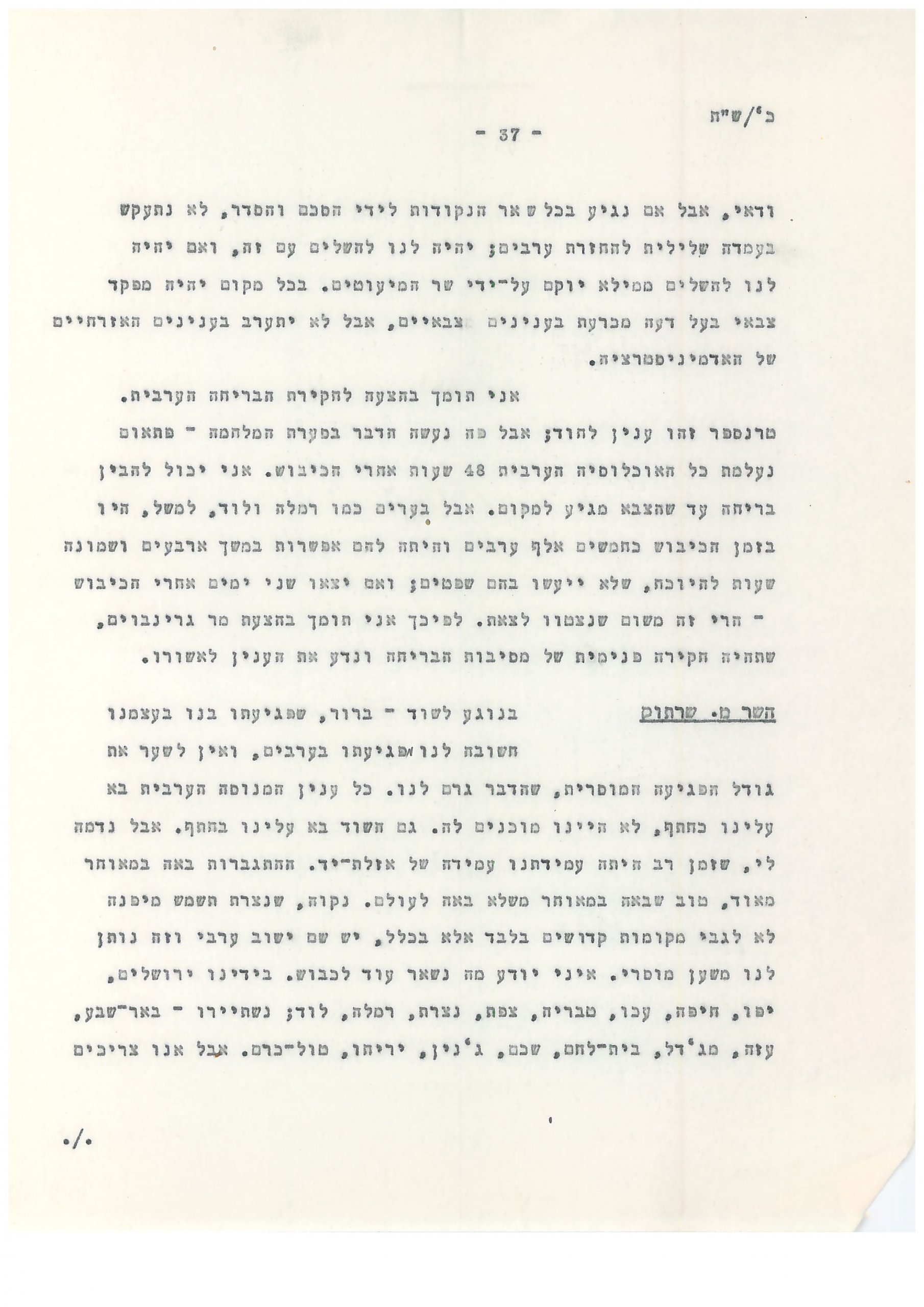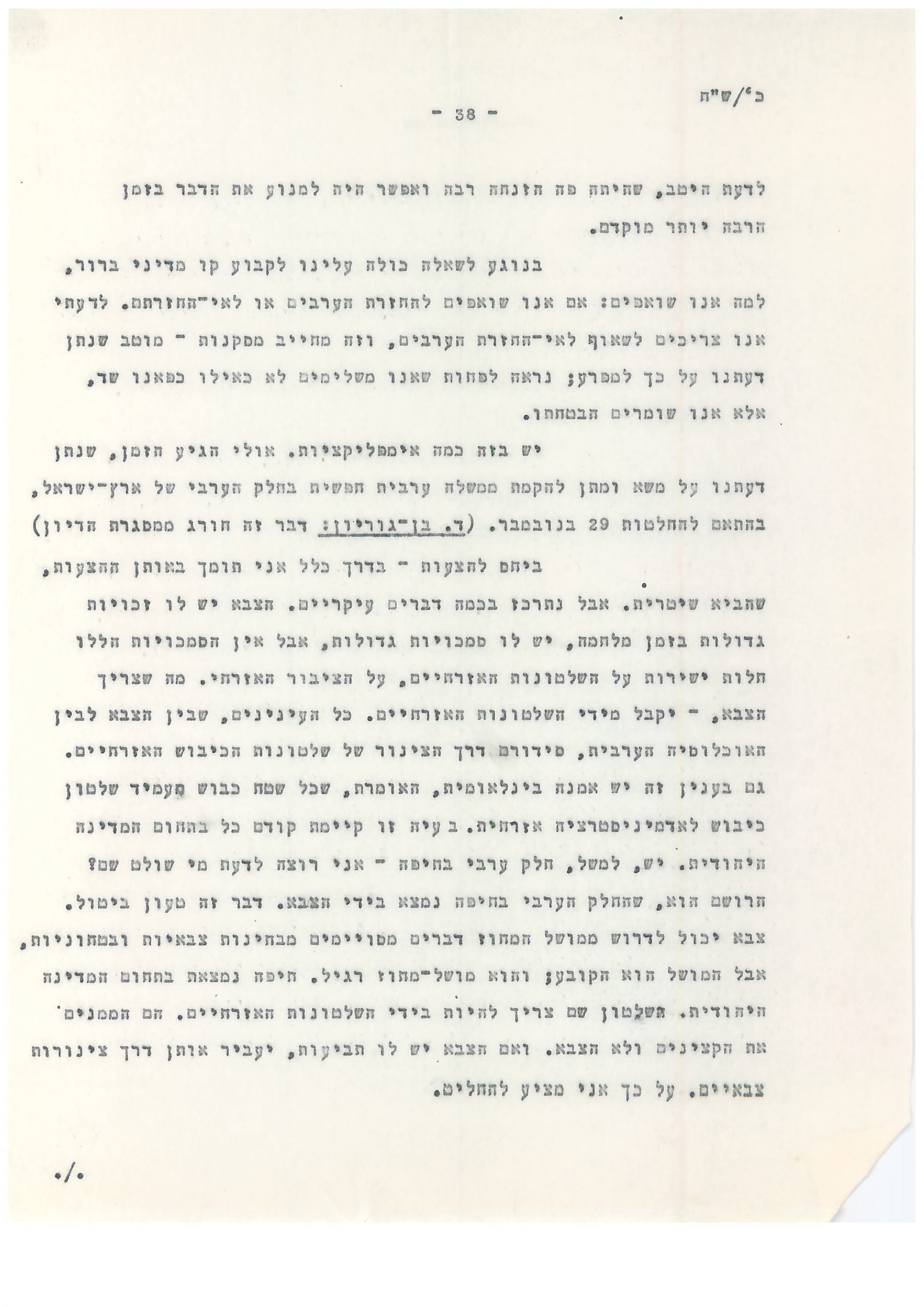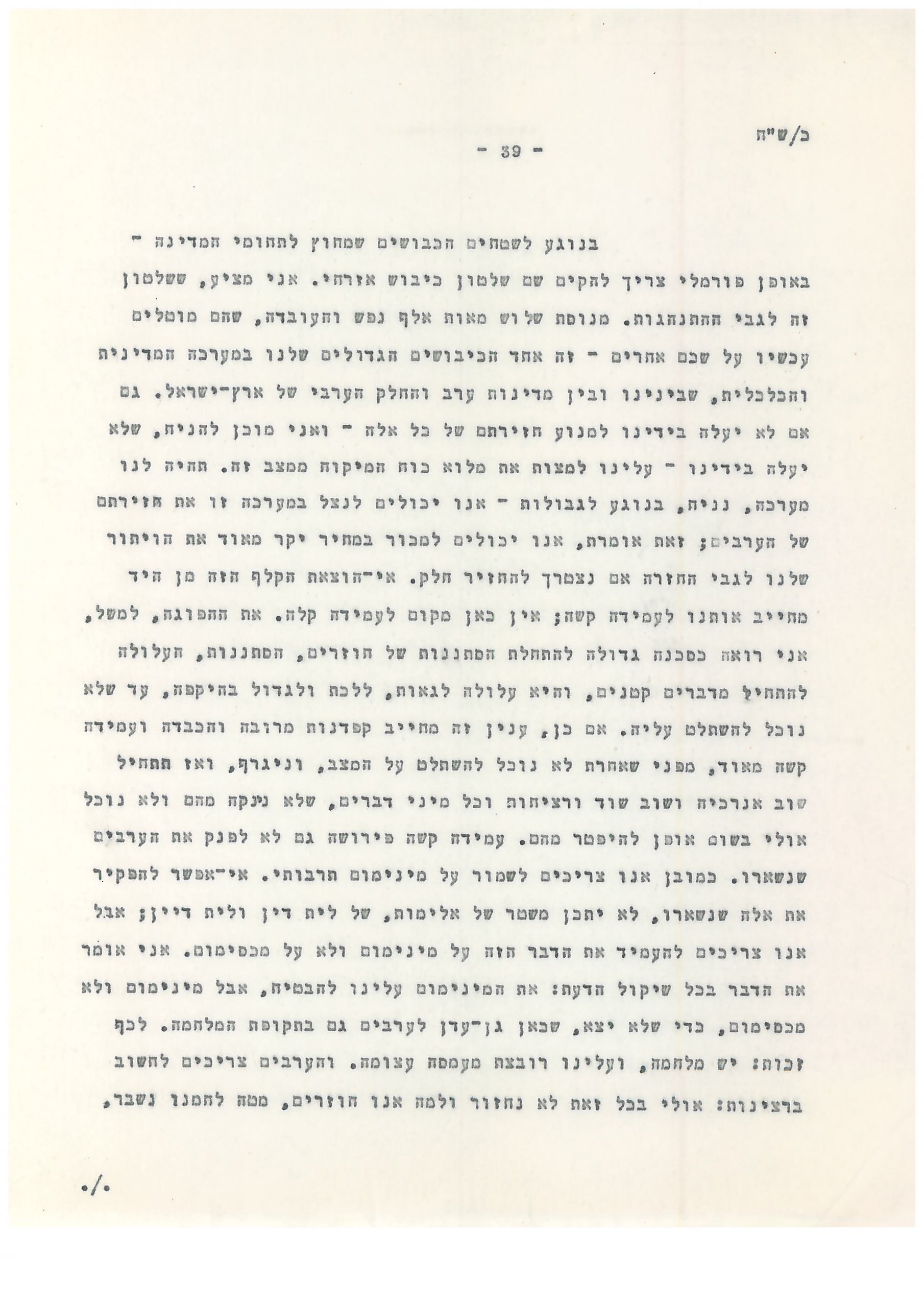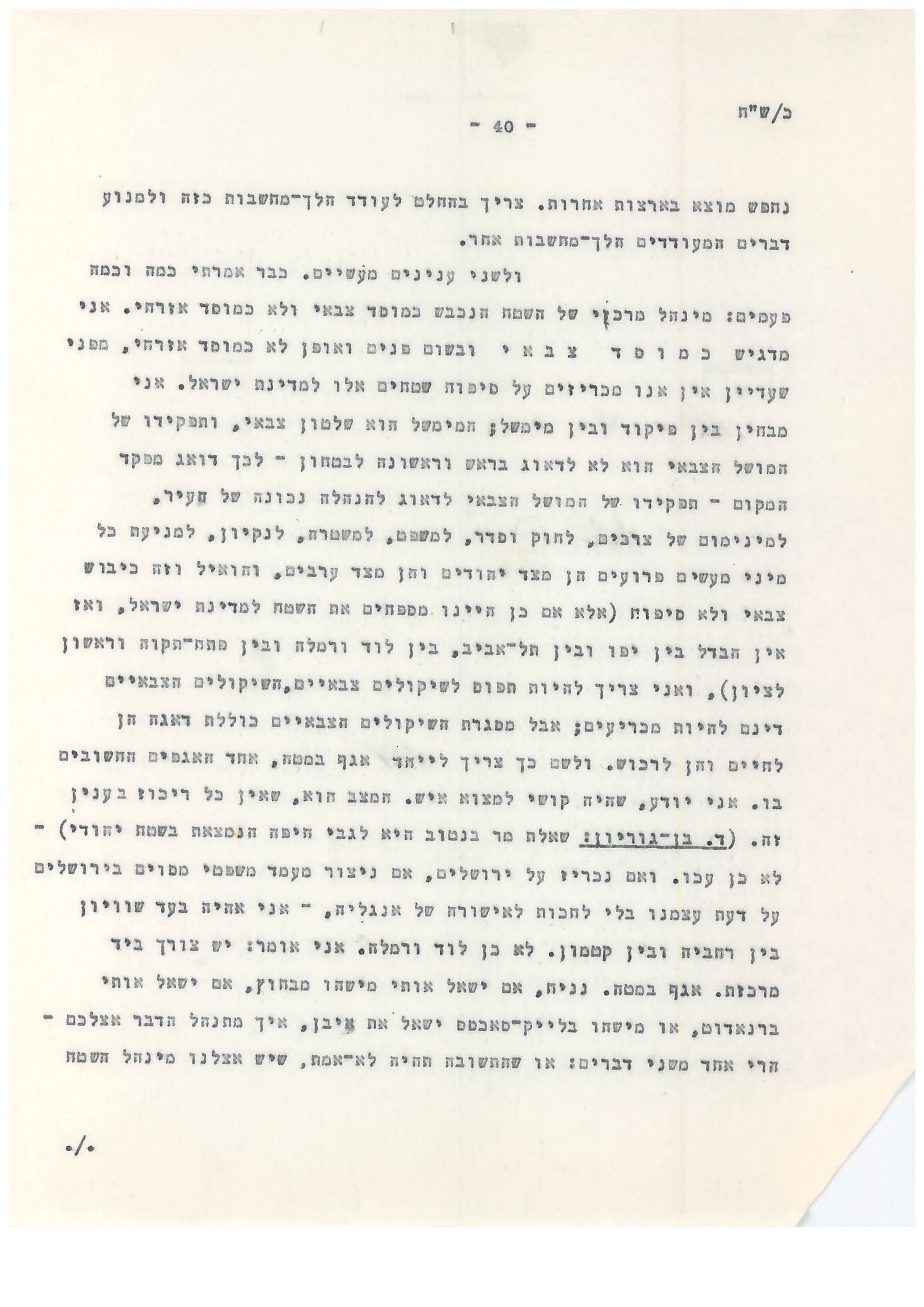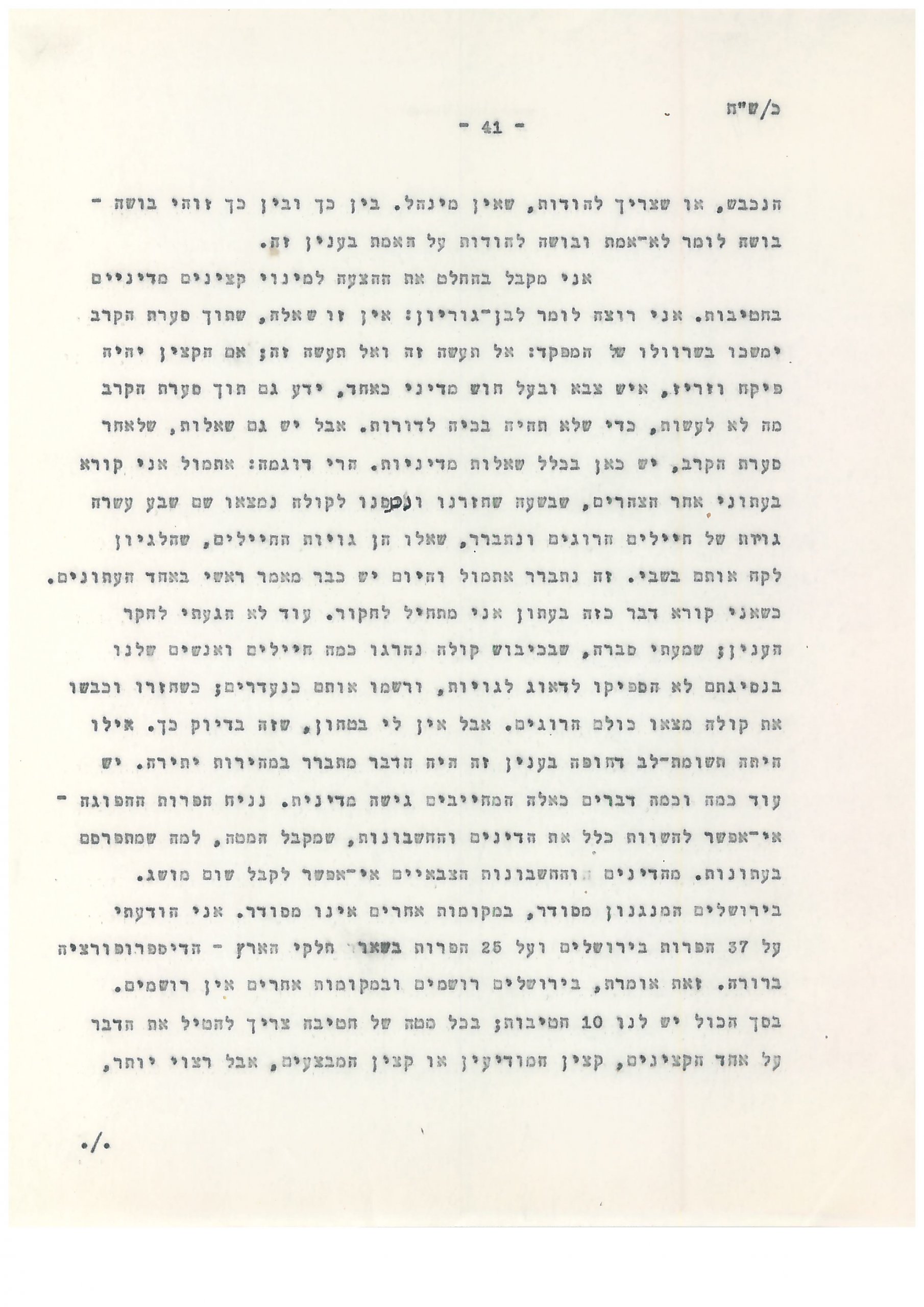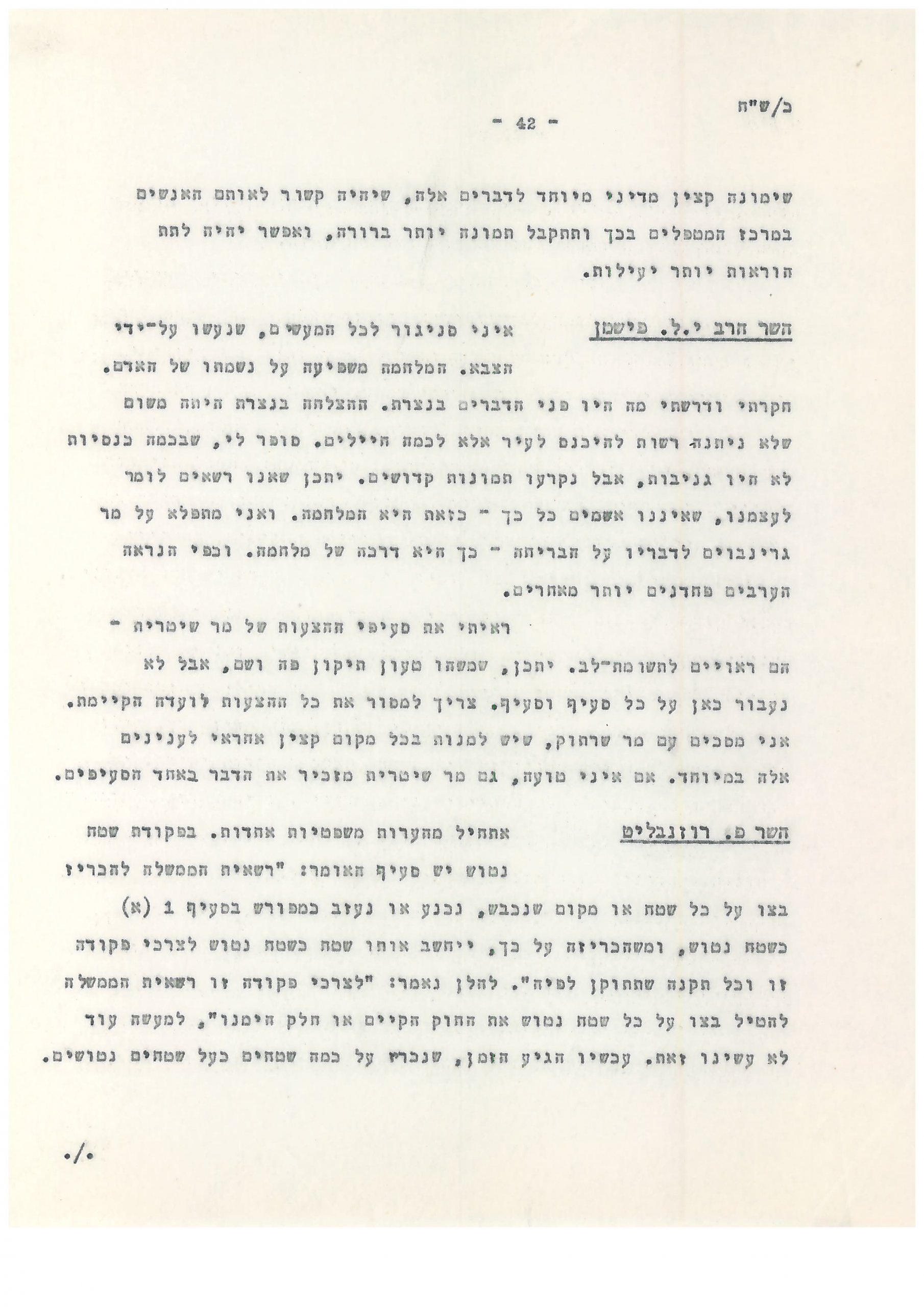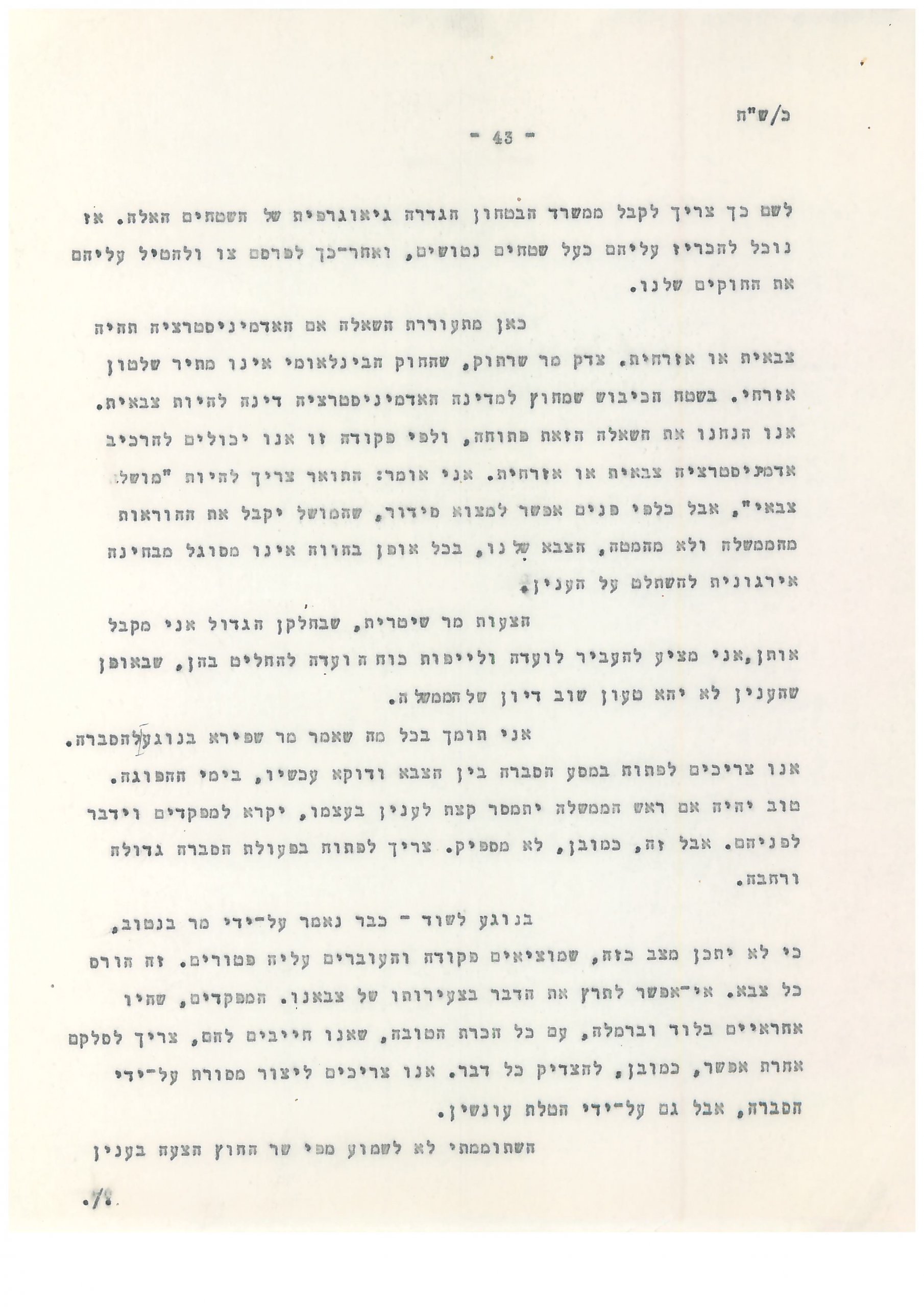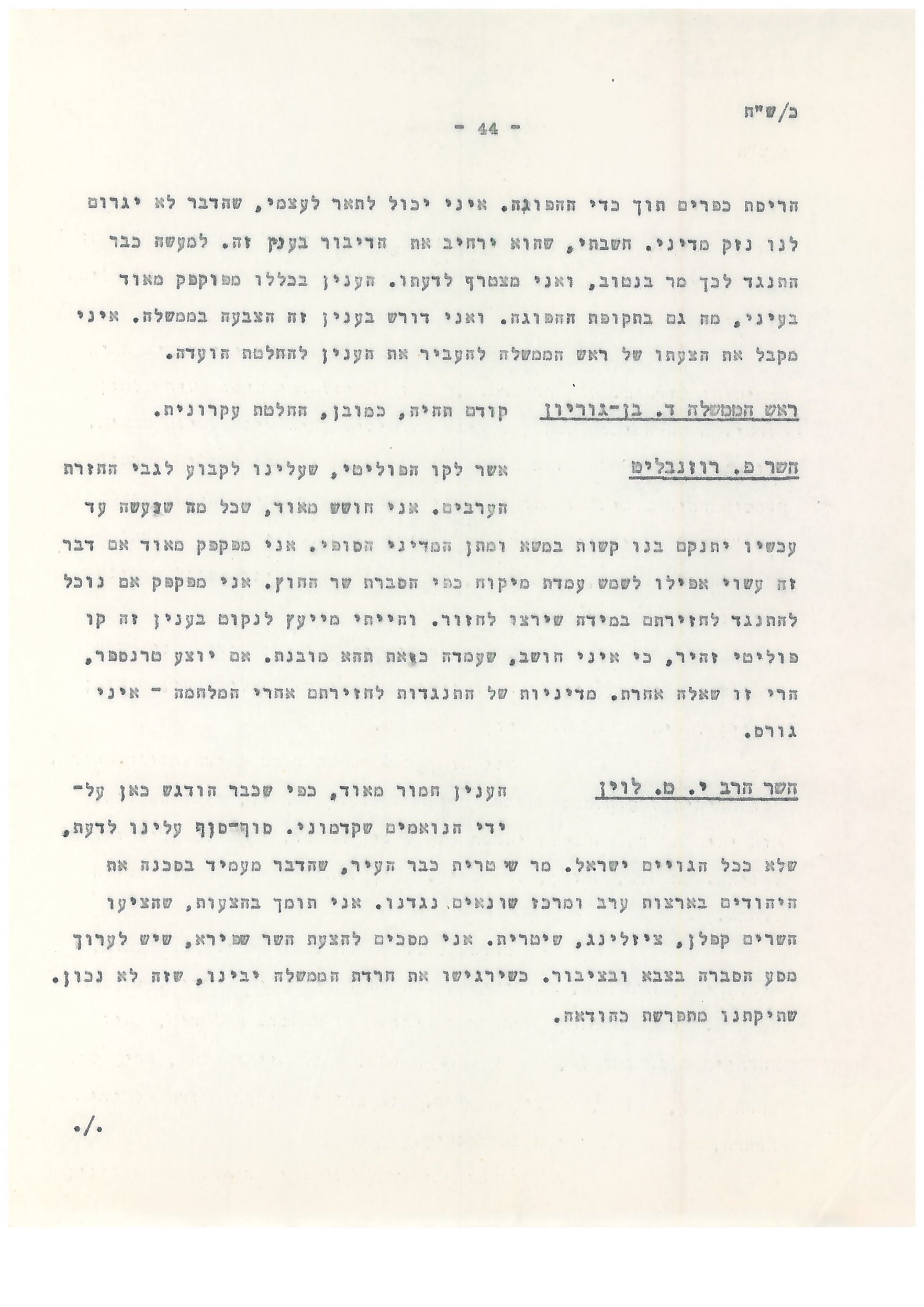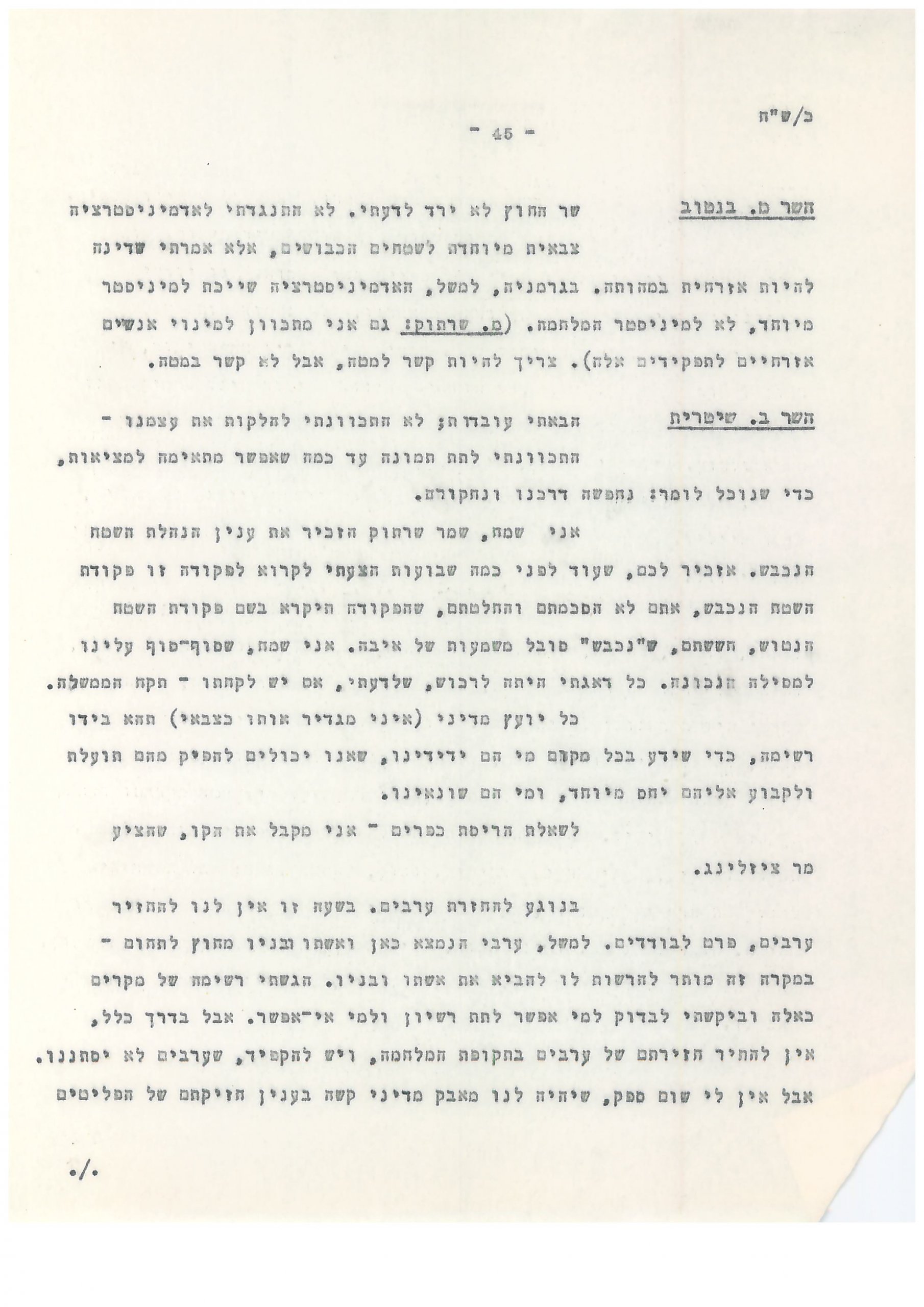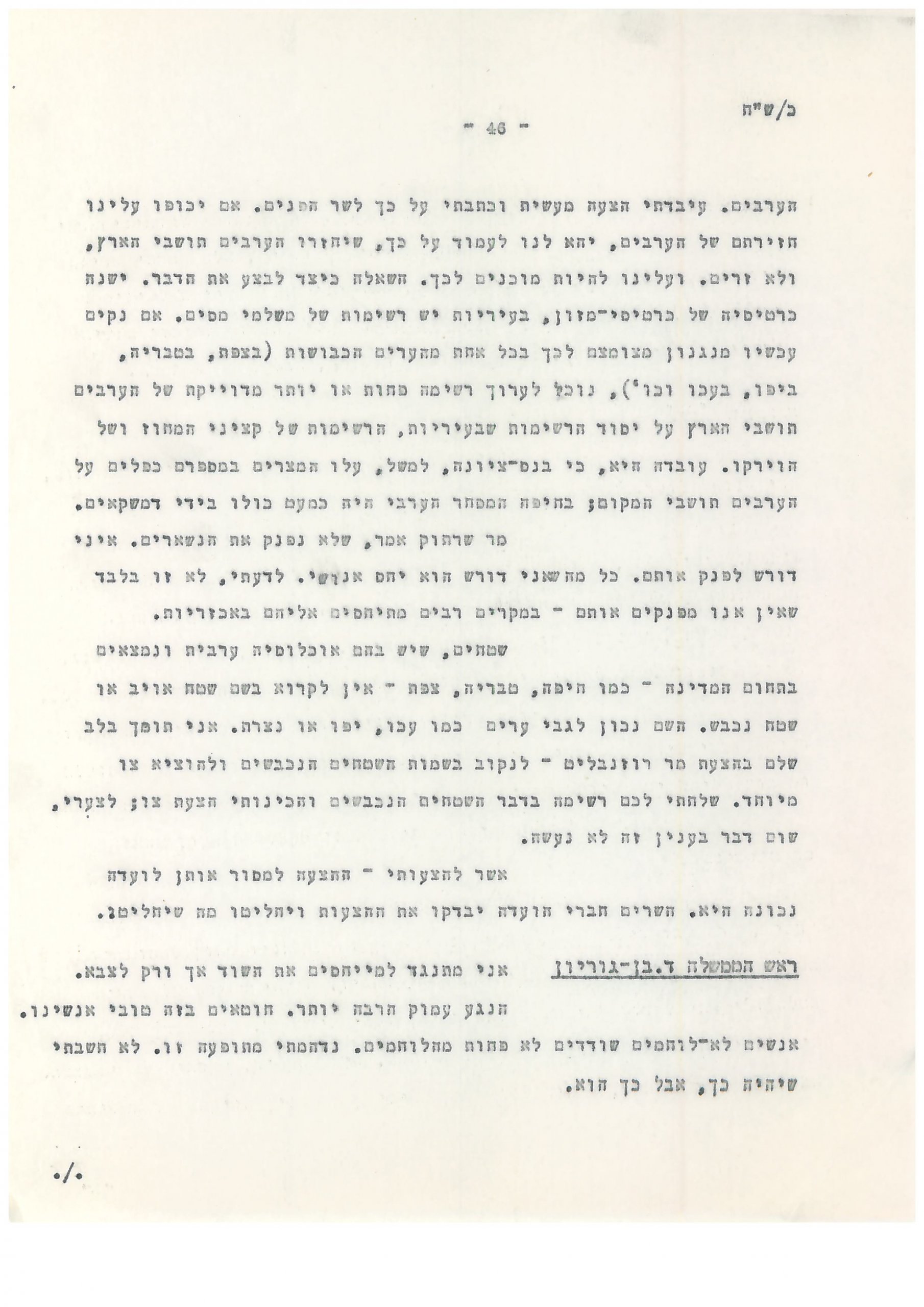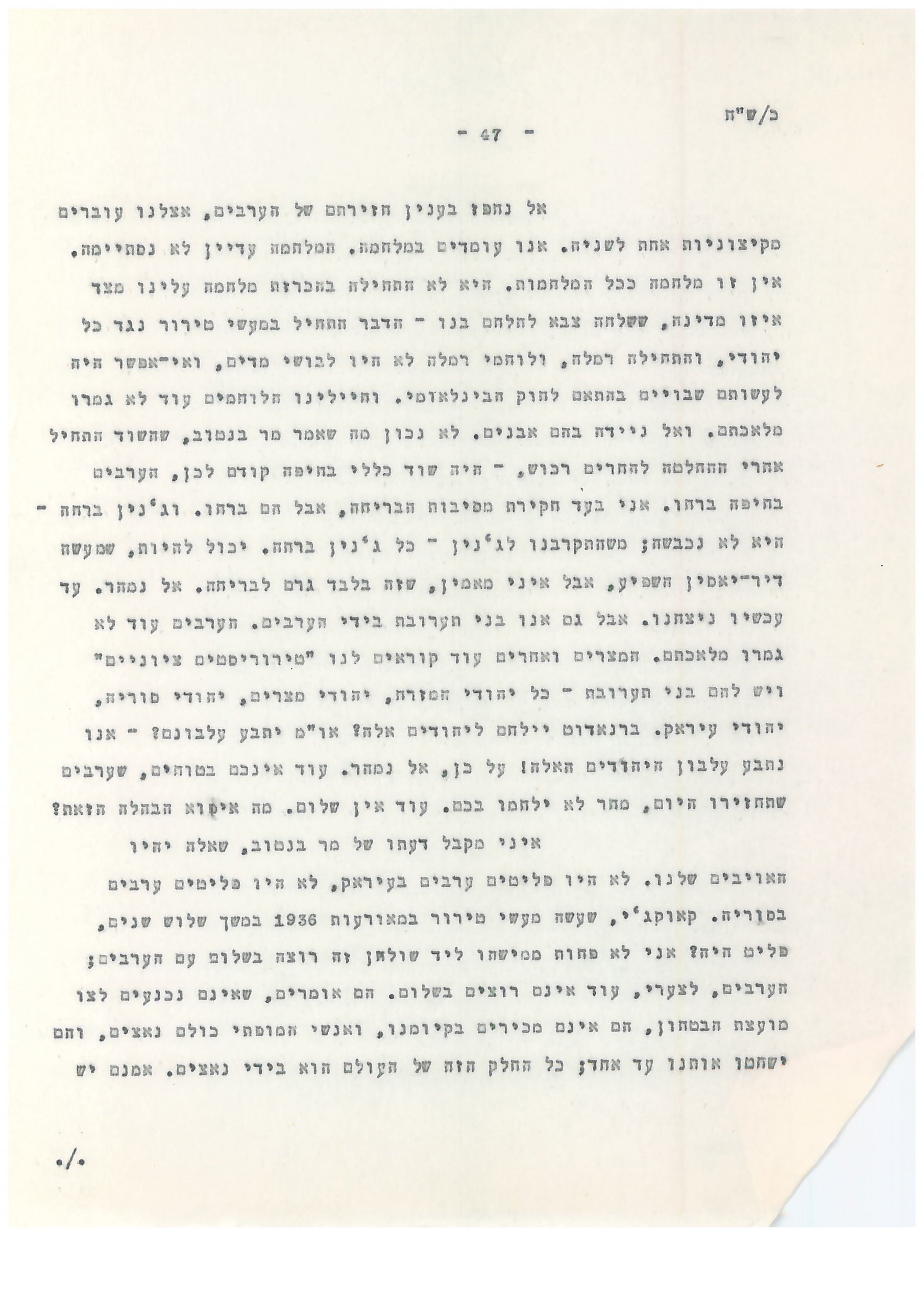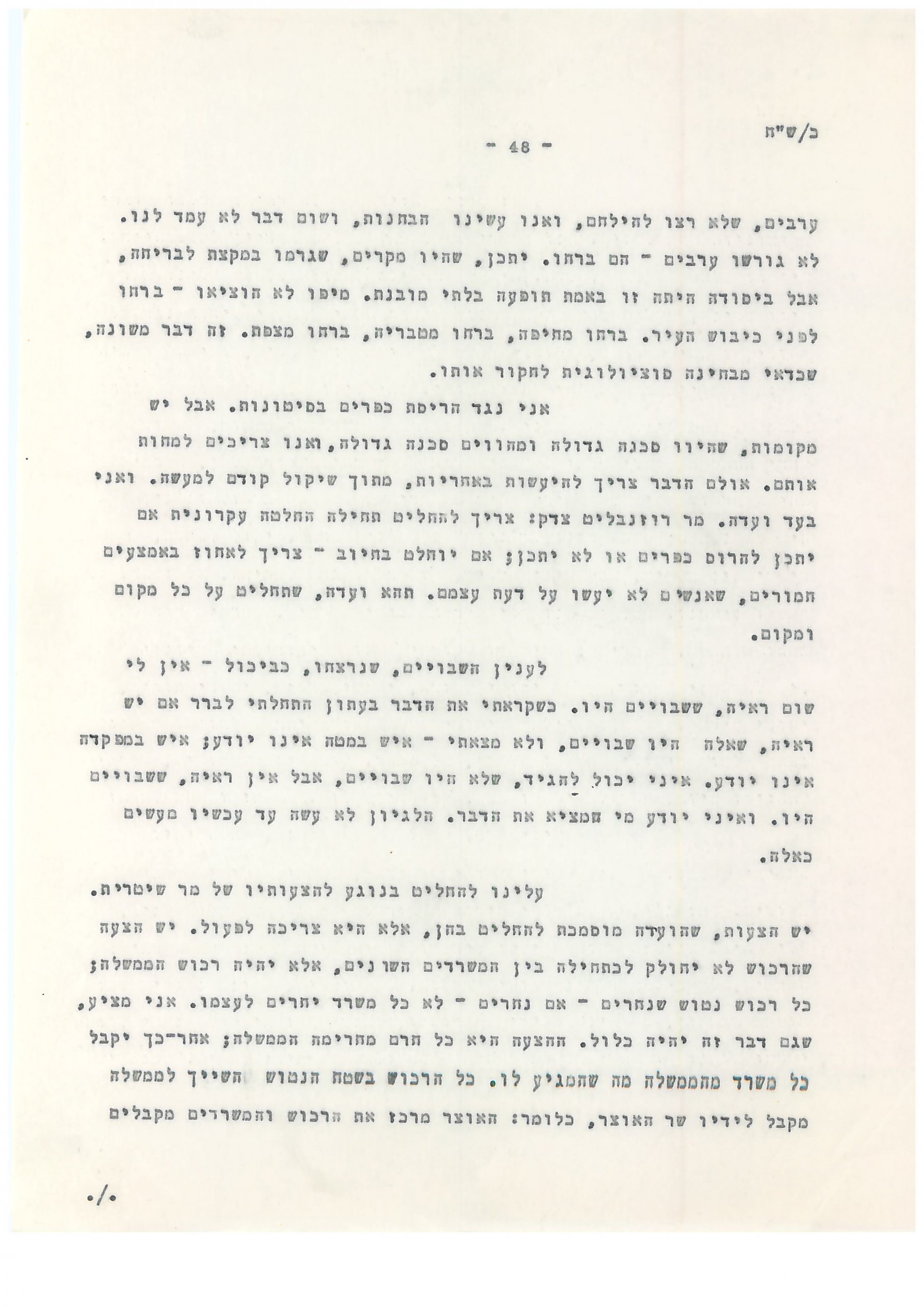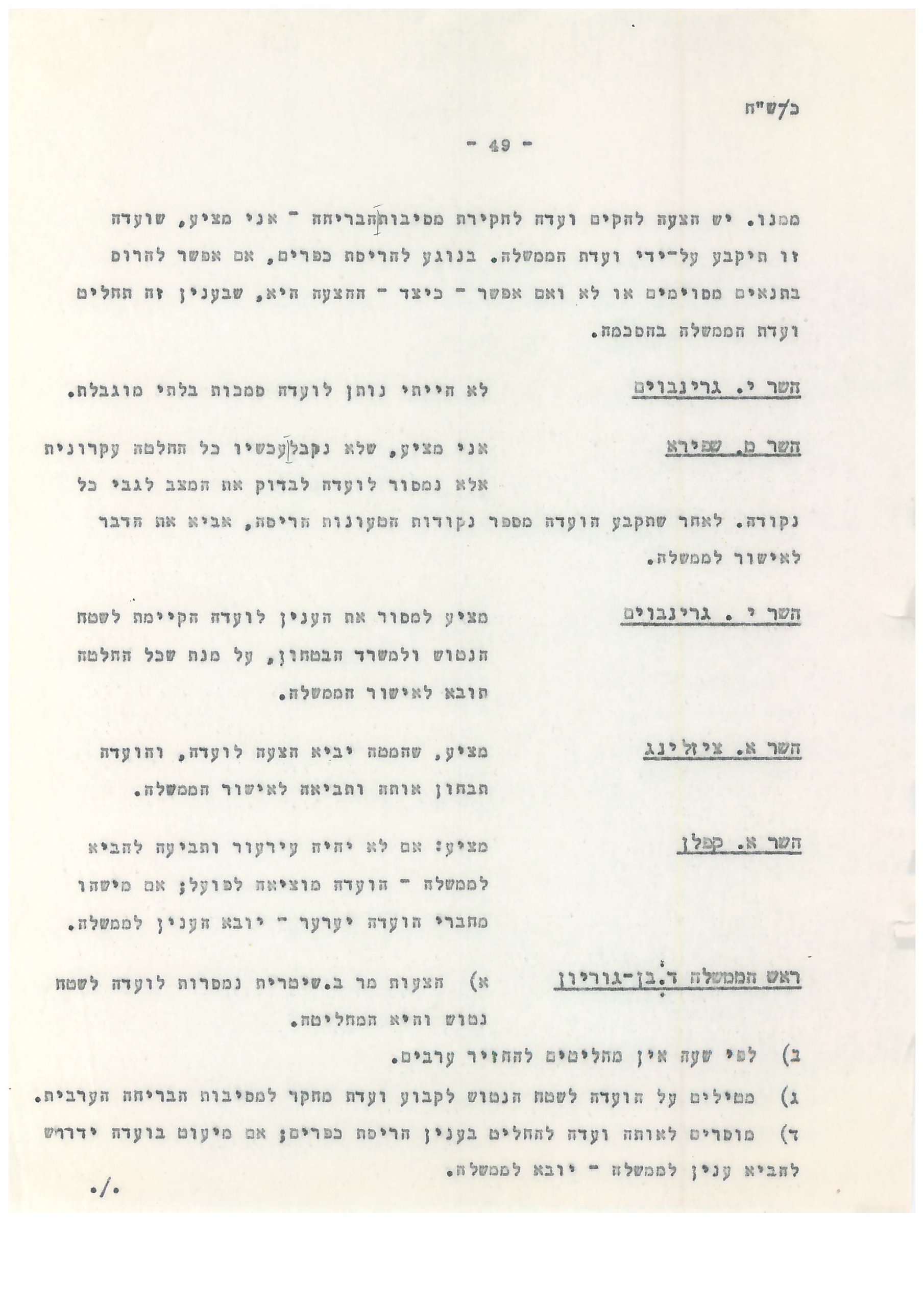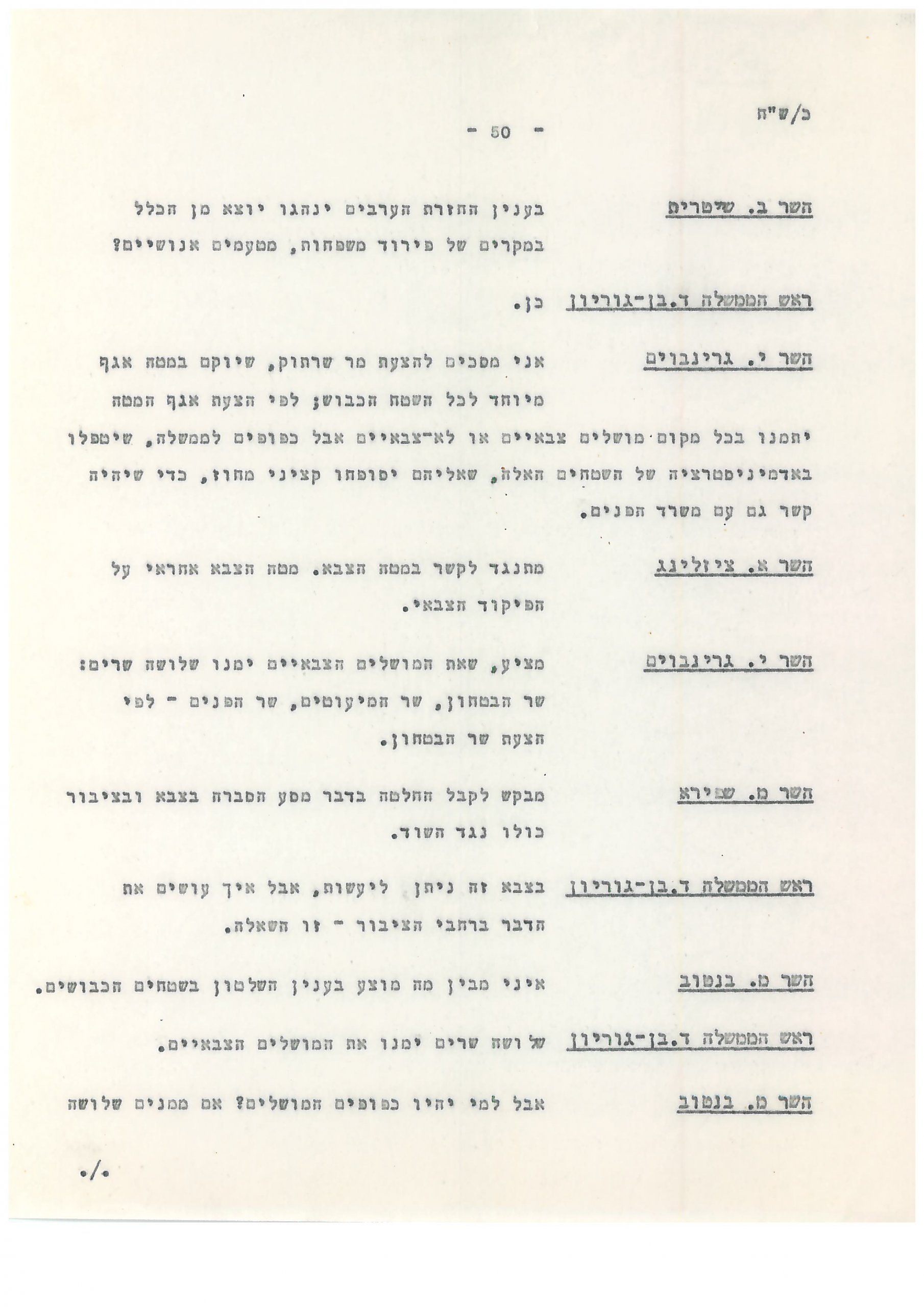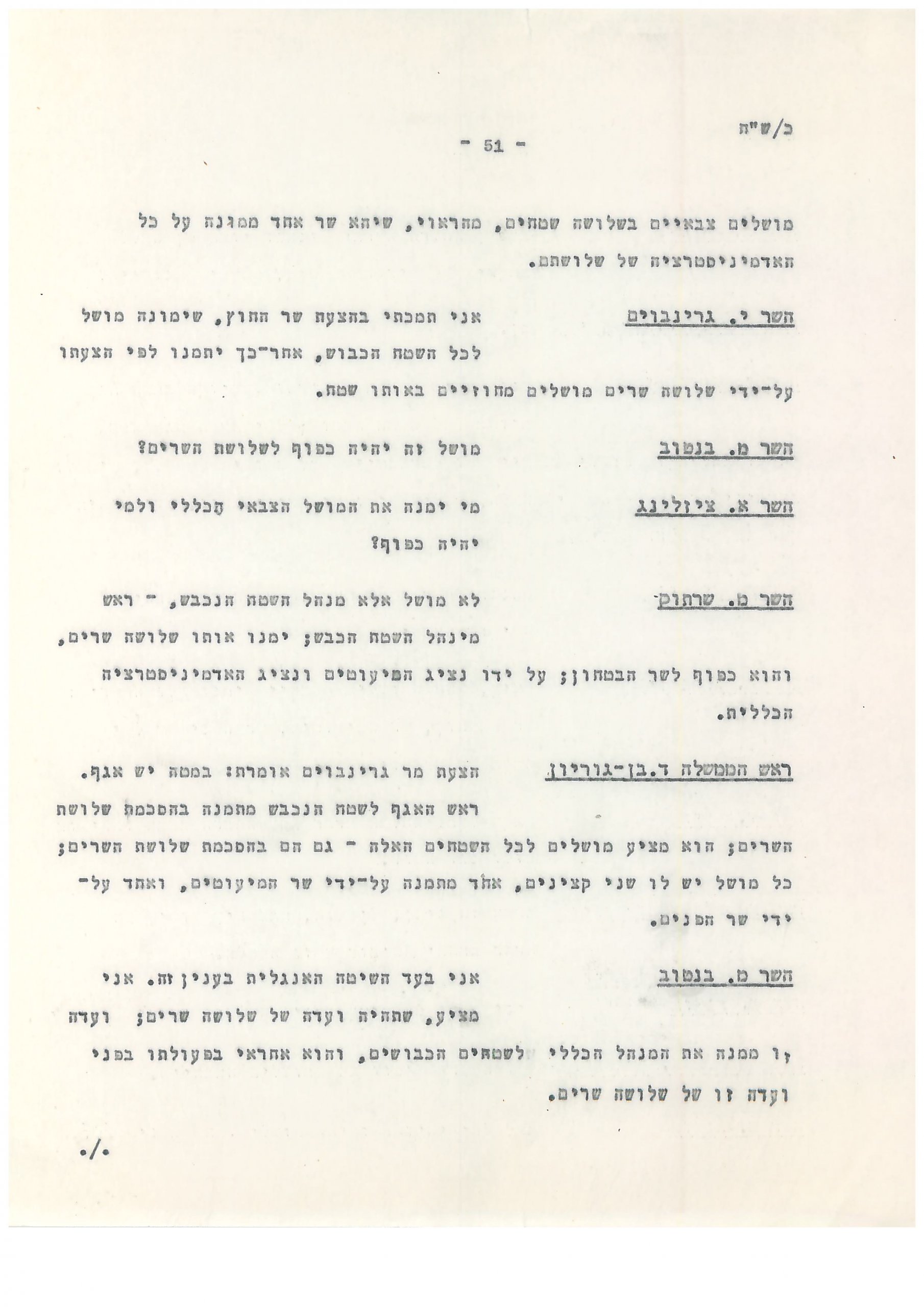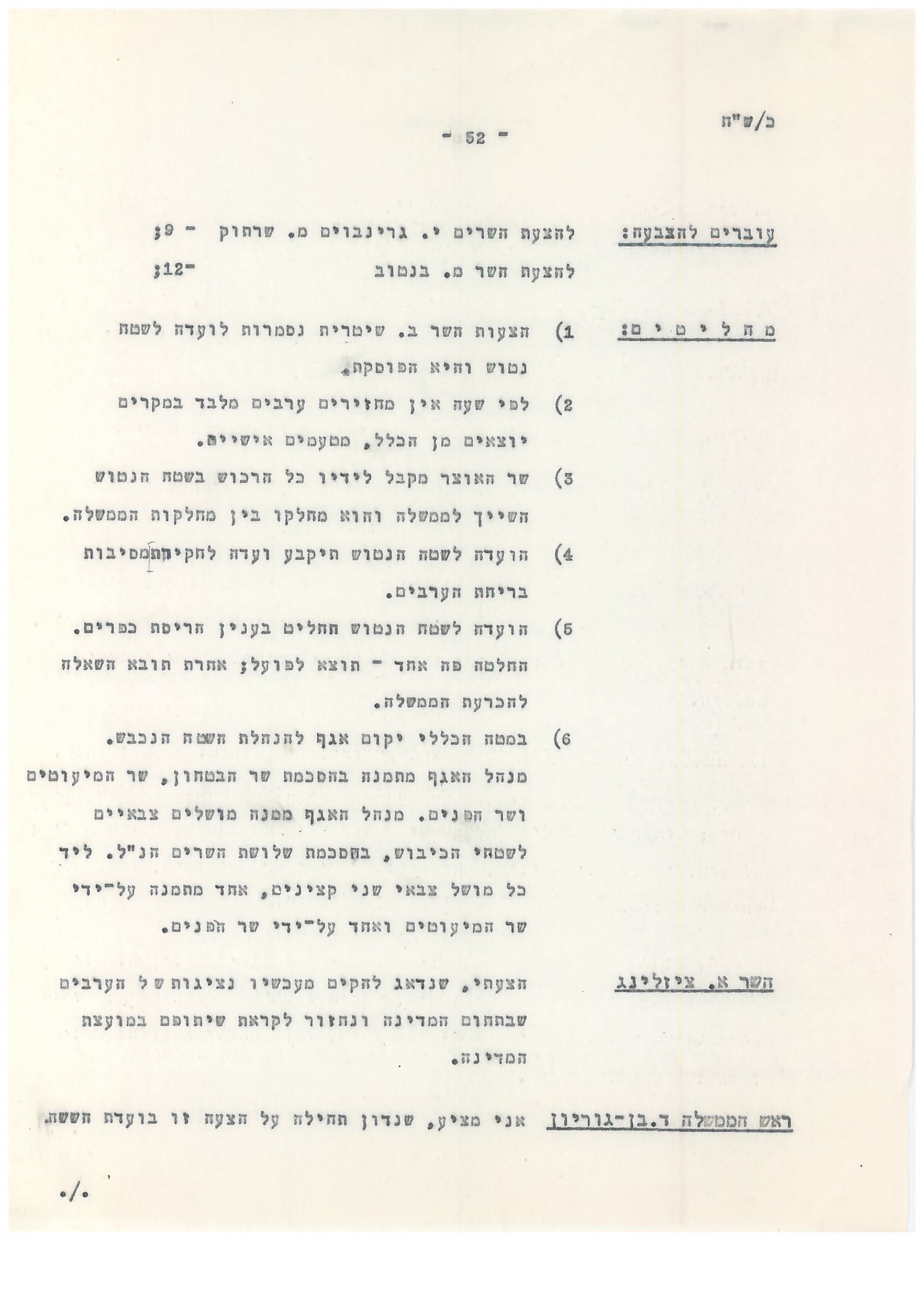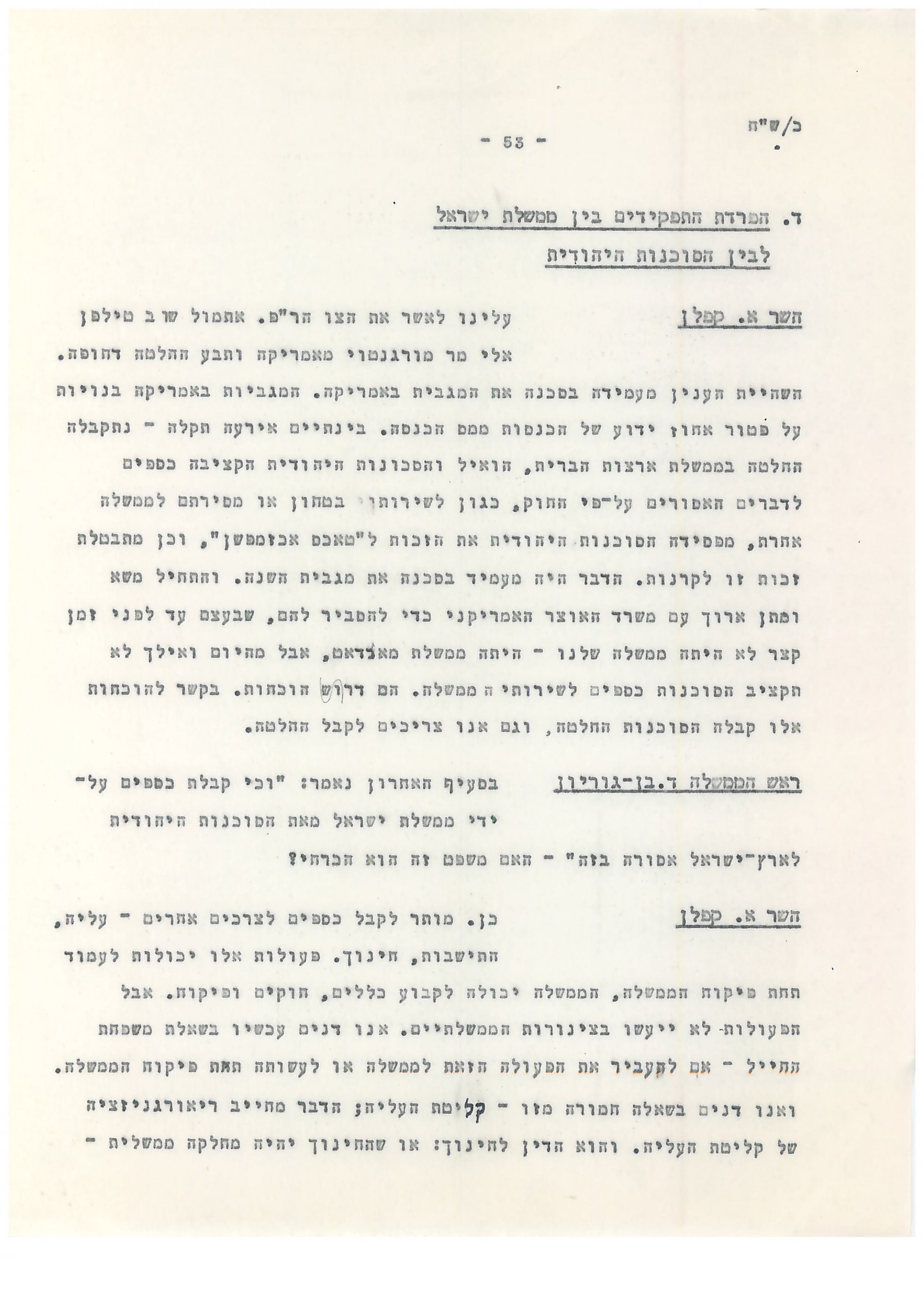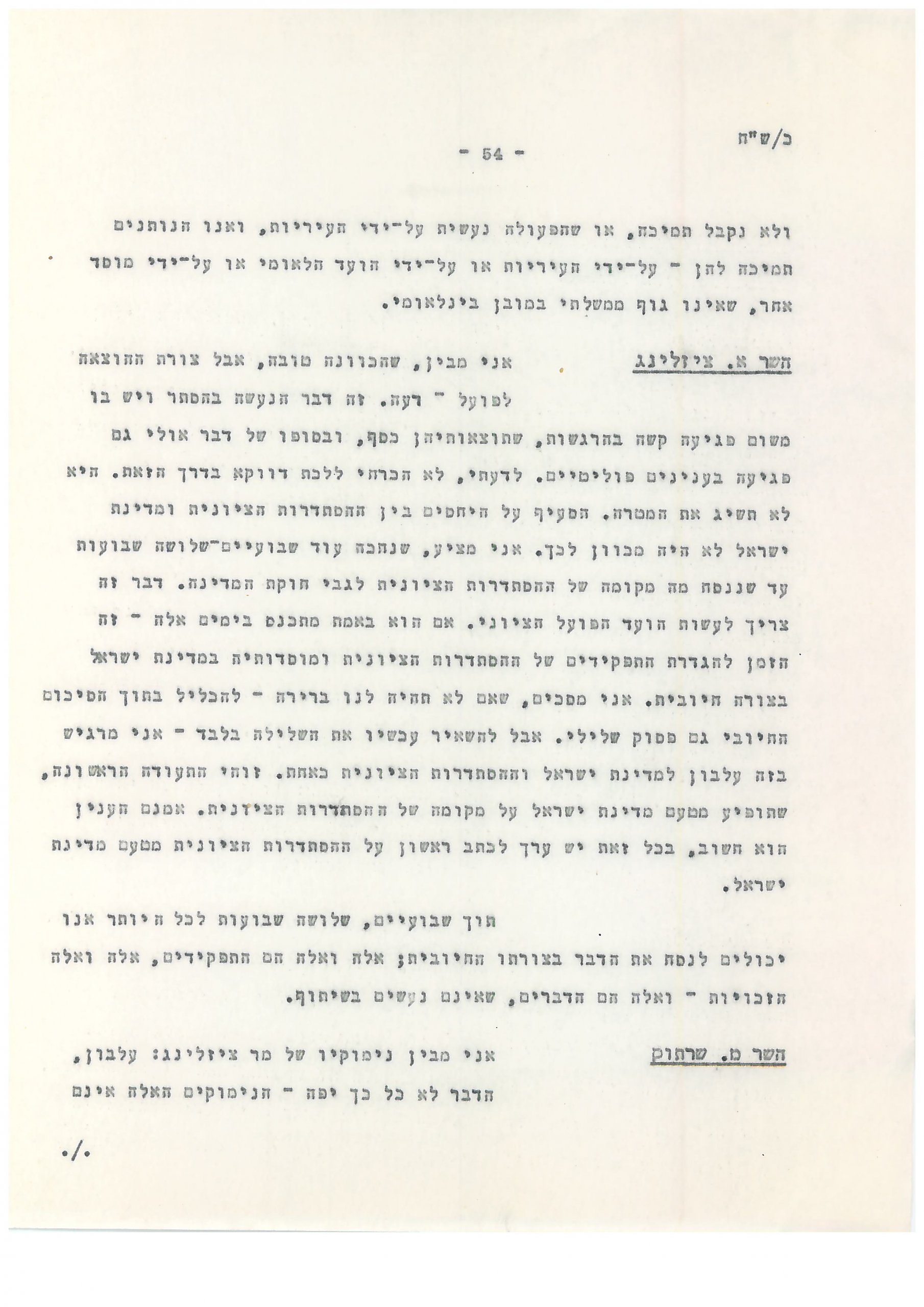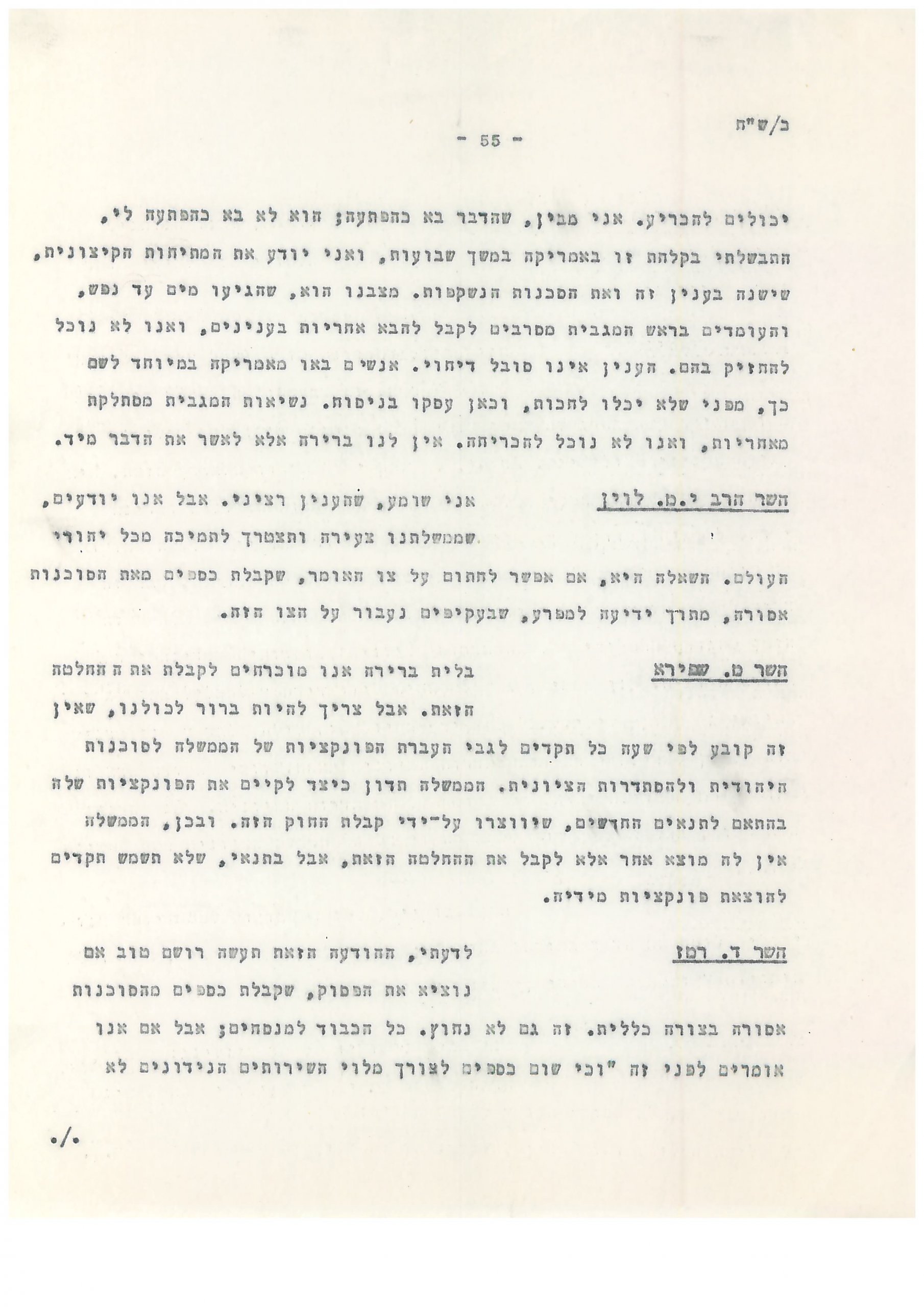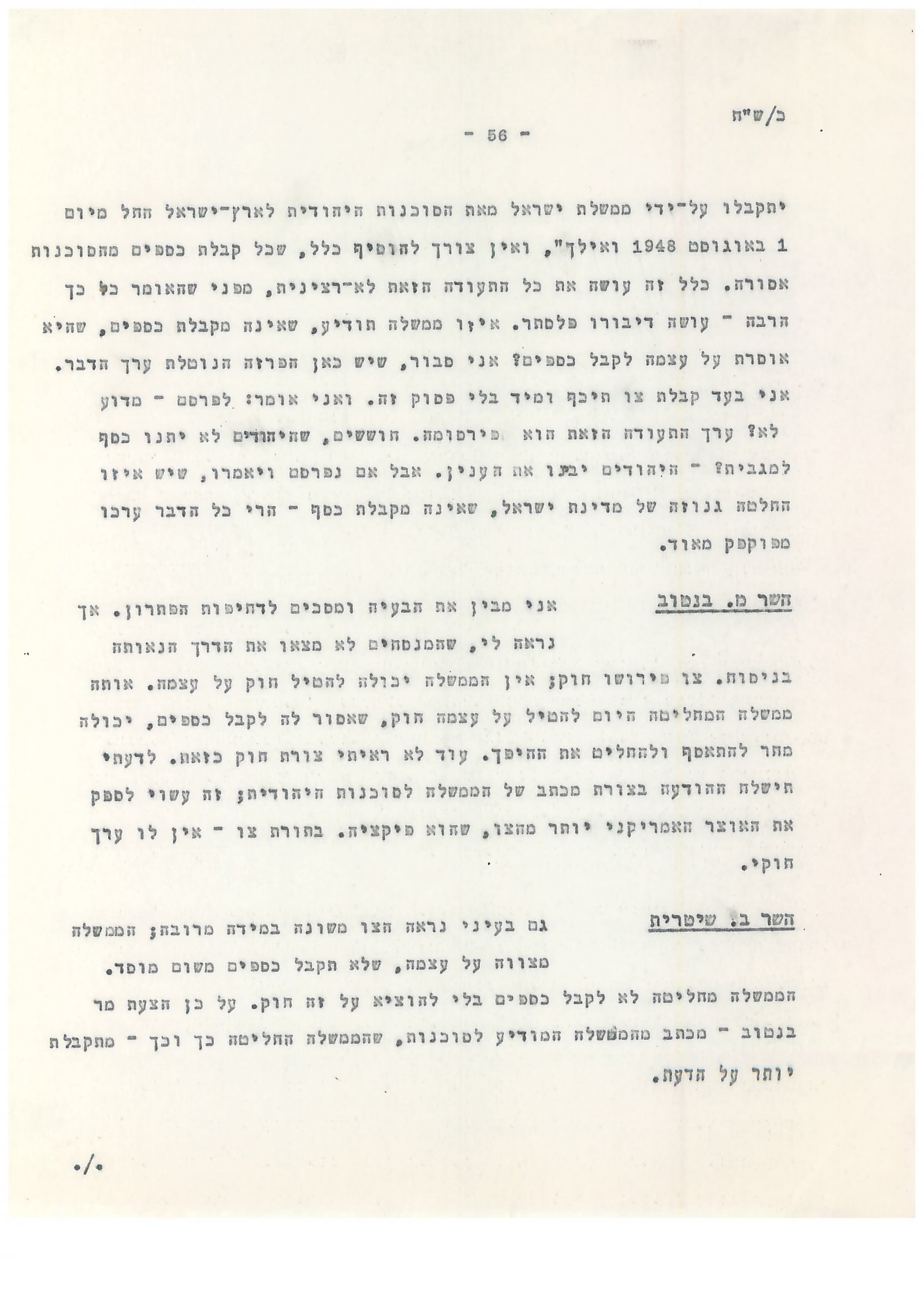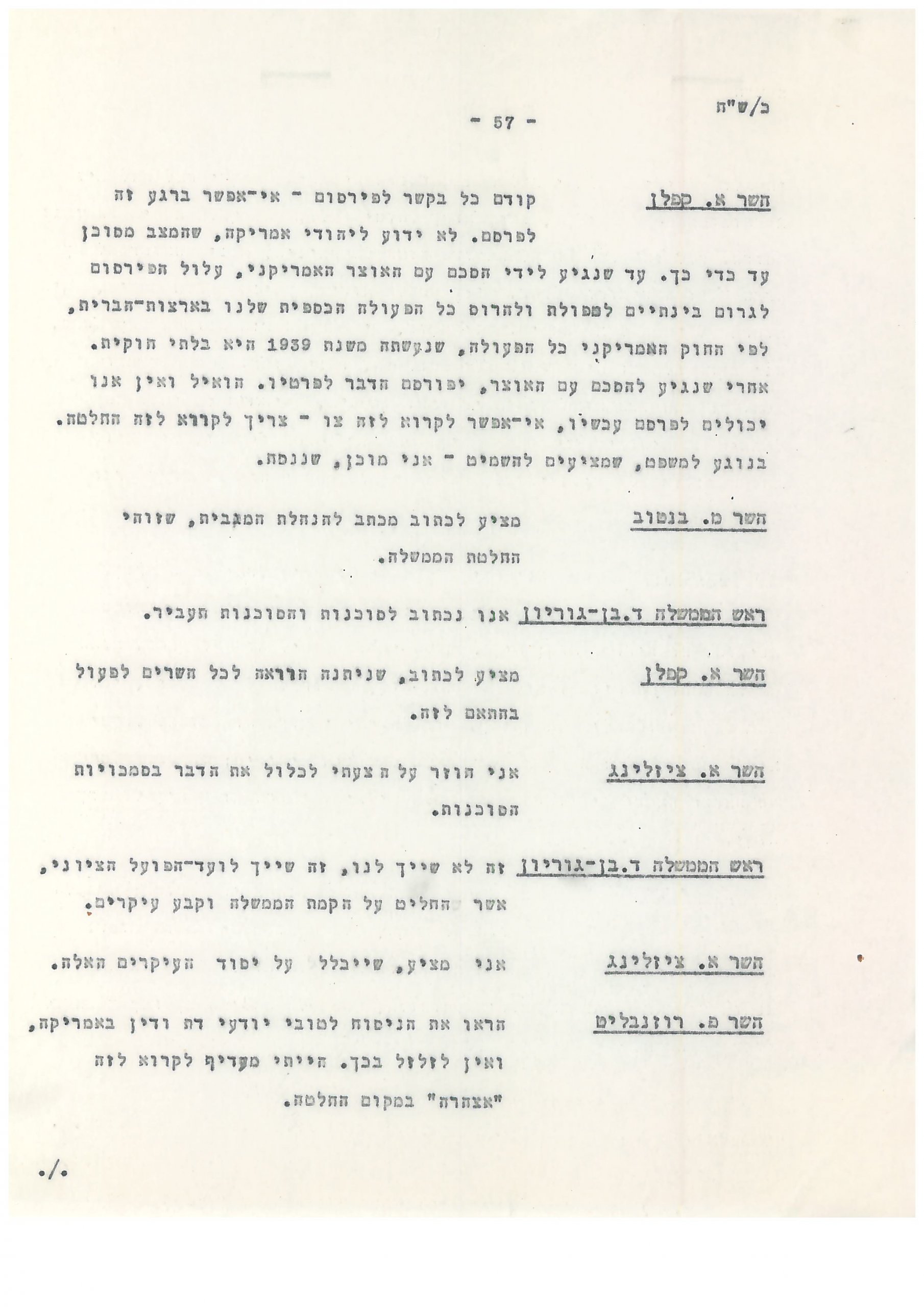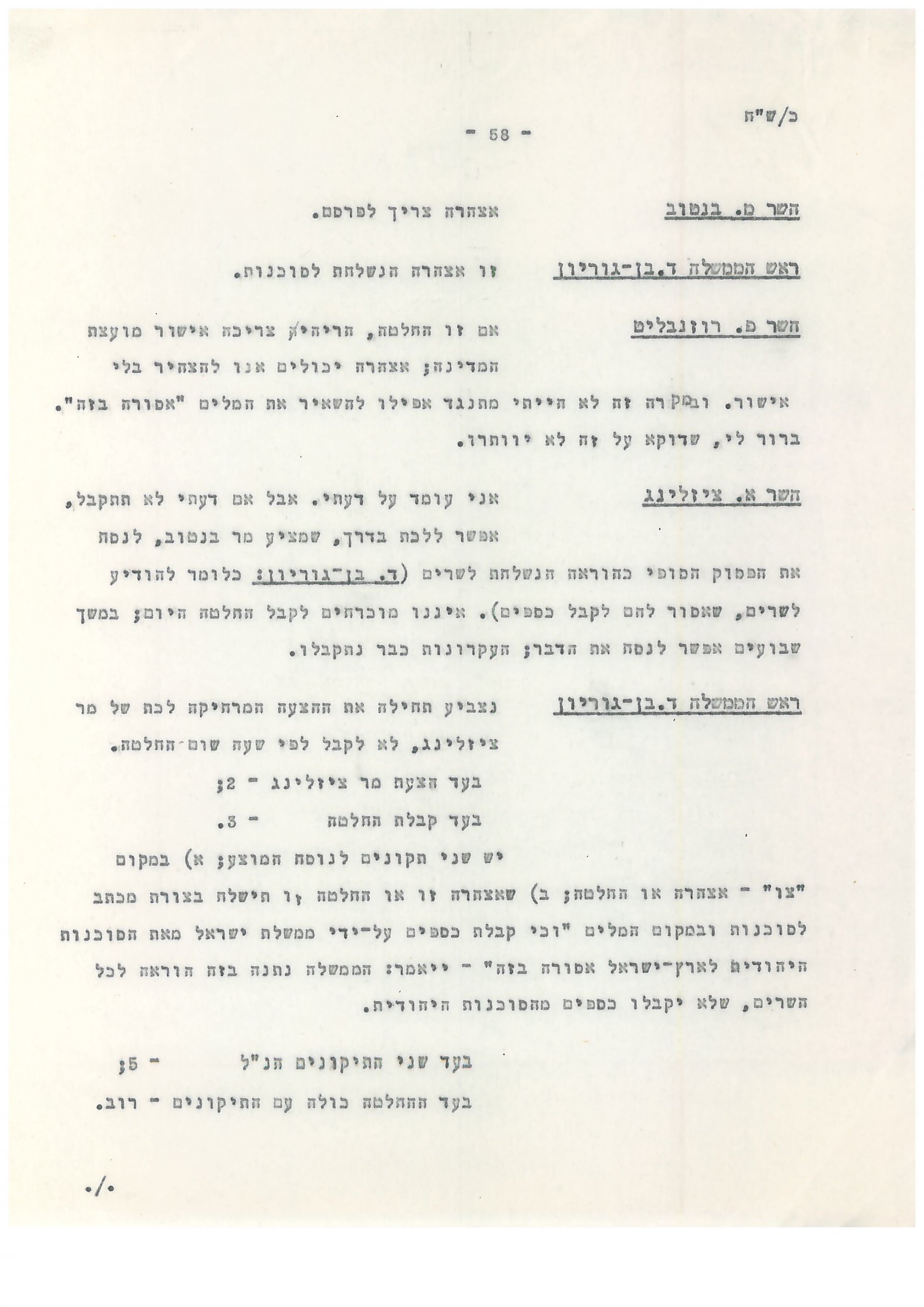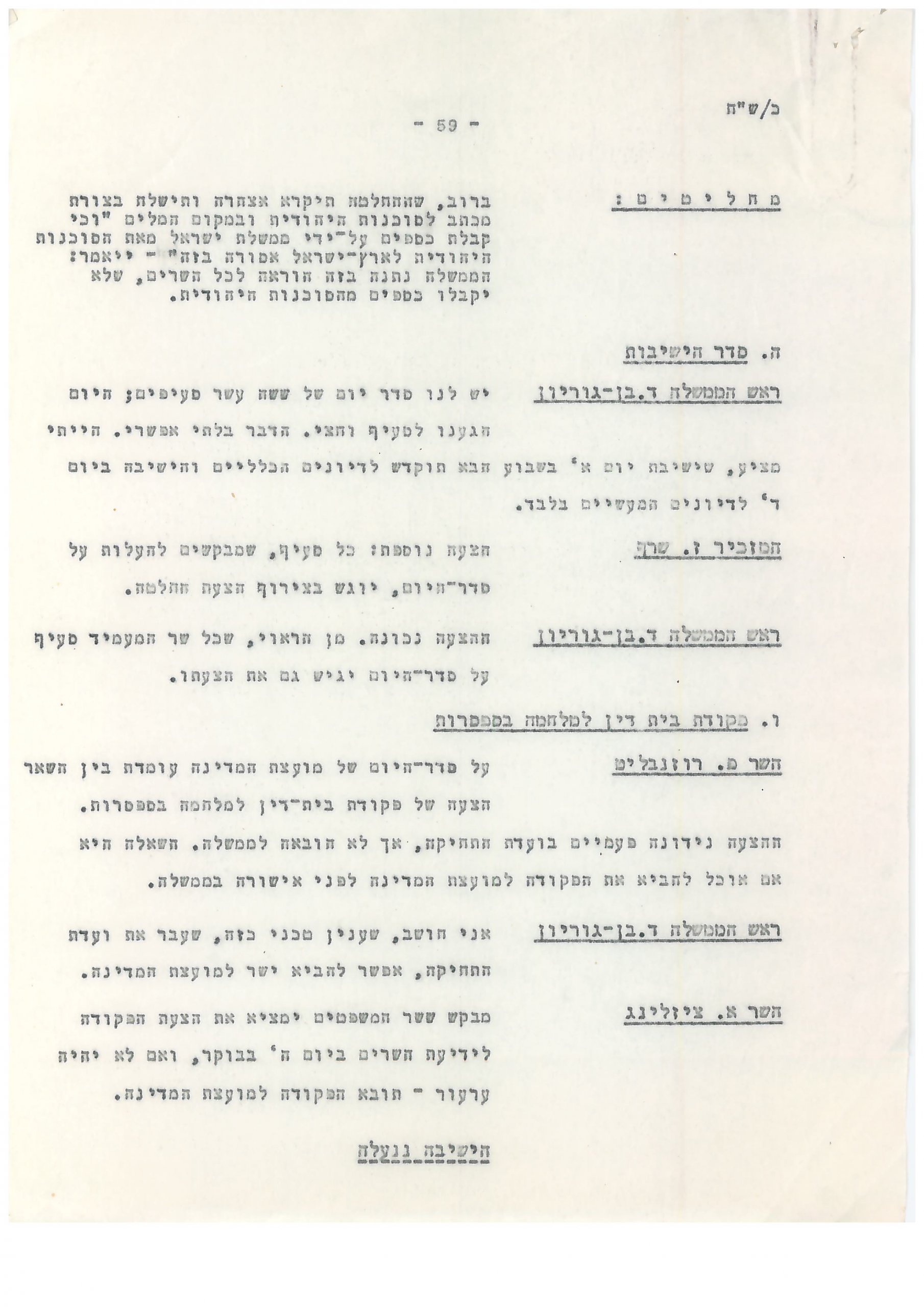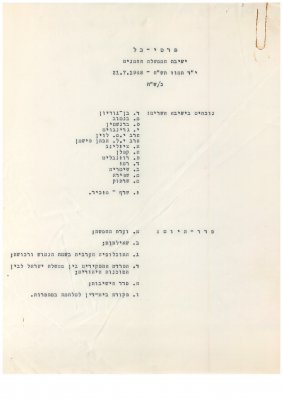During a cabinet meeting held after the major conquests of the 1948 War, ministers discussed the treatment of the Palestinian population during the war, particularly looting. The entire discussion was since closed for public access until now and has been opened thanks to Akevot Institute’s intervention.
Minutes of a government cabinet meeting held on July 21, 1948 have recently been opened for public access and uploaded to the Israel State Archive (ISA) website. The meeting minutes were declassified following a communication Akevot Institute sent to the ISA, demanding declassification of portions of government meetings held in 1948 and 1949 that remained redacted after the minutes were opened for public access in early 1995.
Unlike other meeting minutes originally opened for public access with many redactions that have now been removed, the minutes of the meeting from July 21, 1948, had not been opened for access at all. Short excerpts from the minutes, remarks made by Minister of Agriculture Aharon Zisling of Mapam, were accessible to the public years ago at the Yad Tabenkin Archive (where Zisling’s estate is stored), but they have disappeared according to the Yad Tabenkin Archive director. The records were most likely removed by the DSDE, a practice to remove publicly accessible records that we covered extensively in our report.
The July 21 meeting took place after the major conquests of the 1948 War, and much of it revolved around the treatment of the Palestinians residents, specifically, their property. A key issue brought up in the discussion was the fate that had befallen residents of Ramle and Lod. Several ministers criticized the expulsion of Palestinians from the two cities and denounced the crimes committed against them.
Minister of Minority Affairs, Bechor-Shalom Sheetrit said: “I have stressed that we, as a minority that has suffered through thousands of years of diaspora, should know to value minorities and adopt a humane approach towards them. Unfortunately, I must note that everything that has been done (and you [cabinet members] are well aware of this) is not encouraging.” Sheetrit went into detail about the widespread looting in the country and the expulsion of Palestinians from their communities.
There is another blight – displacement of residents from their communities without approval from the Ministry of Minority Affairs. The military and the police have often ignored the demands and needs of the Ministry of Minority Affairs. Here is an example. Several days ago, Lod and Ramle were conquered. On the day of the conquest, I visited the area. In Ramle, residents did not remain in their homes. In Lod, the military estimates three thousand residents remained. Forty-eight hours after the conquest, no residents were left in either Lod or Ramle. I did not know, and I could not receive an answer as to whether these residents had been forcibly or voluntarily displaced. If they left voluntarily – it is their business. If they were forcibly displaced – this has to be addressed. The country’s population, especially in the cities, has diminished greatly […] In the villages where residents have remained, there is a constant struggle with the military over whether to leave them be or displace them […] My demand is a line which we will follow and know what we must do in order to eliminate the wantonness that has spread through our camp.
Minister of Labor Mordechai Bentov, a member of Mapam, also addressed wanton behavior. Bentov mentioned he understood the difficulties involved in fighting in an area with a civilian population: “Some villages contain enemy hubs, but there are international conventions about how to treat the civilian population in times of war. Sure, it is easy to expel. Hitler was the first […] But should we be in a situation where we are said to be fighting in contravention of international conventions? Everything we are doing defies international conventions!” Bentov even proposed investigating what he referred to as the “Arab escape.”
Two passages in the minutes now opened for public access have been blacked out by the ISA. However, the redactions were done so ineptly that it is easy to see what the ISA wanted to continue hiding even today.

